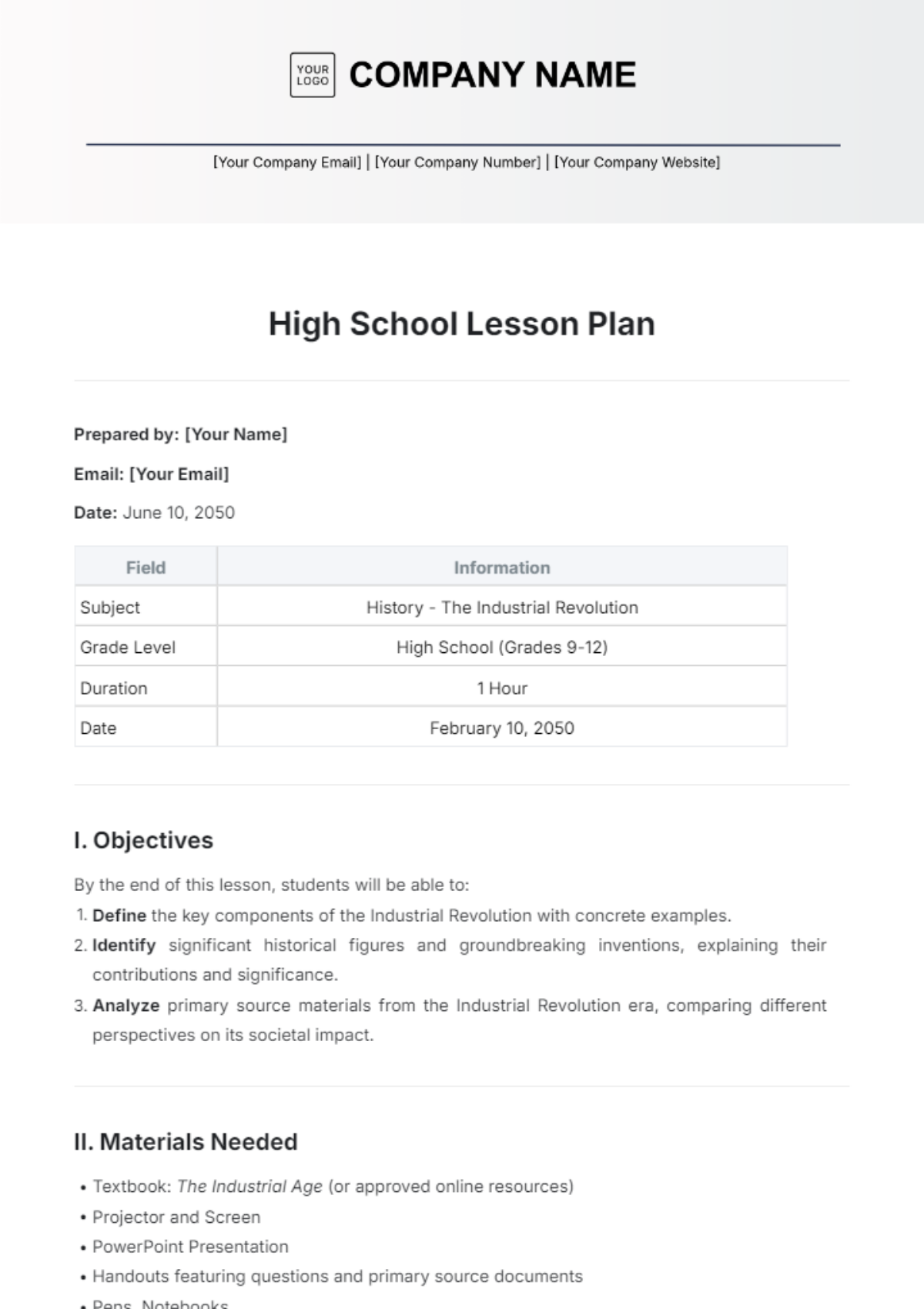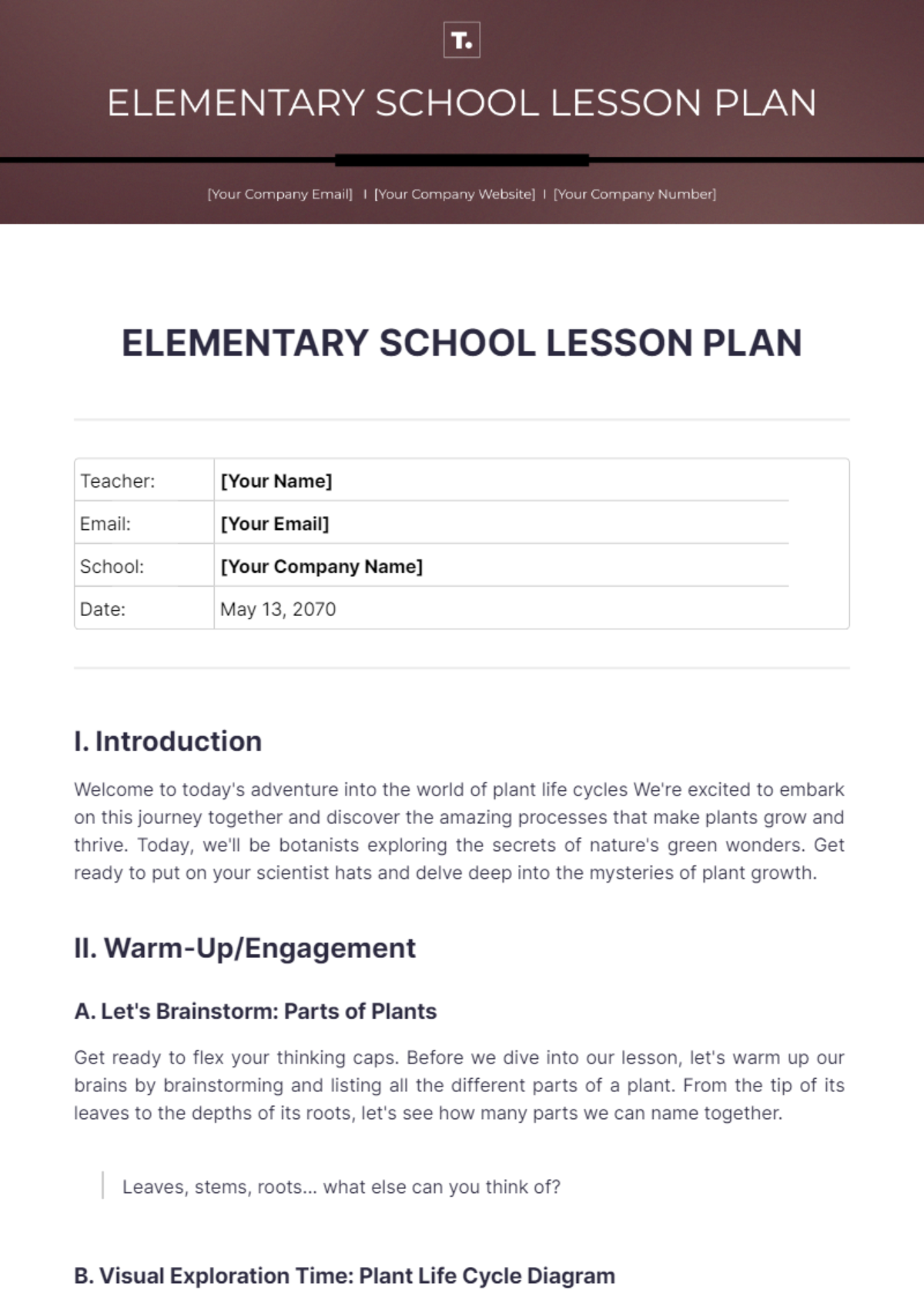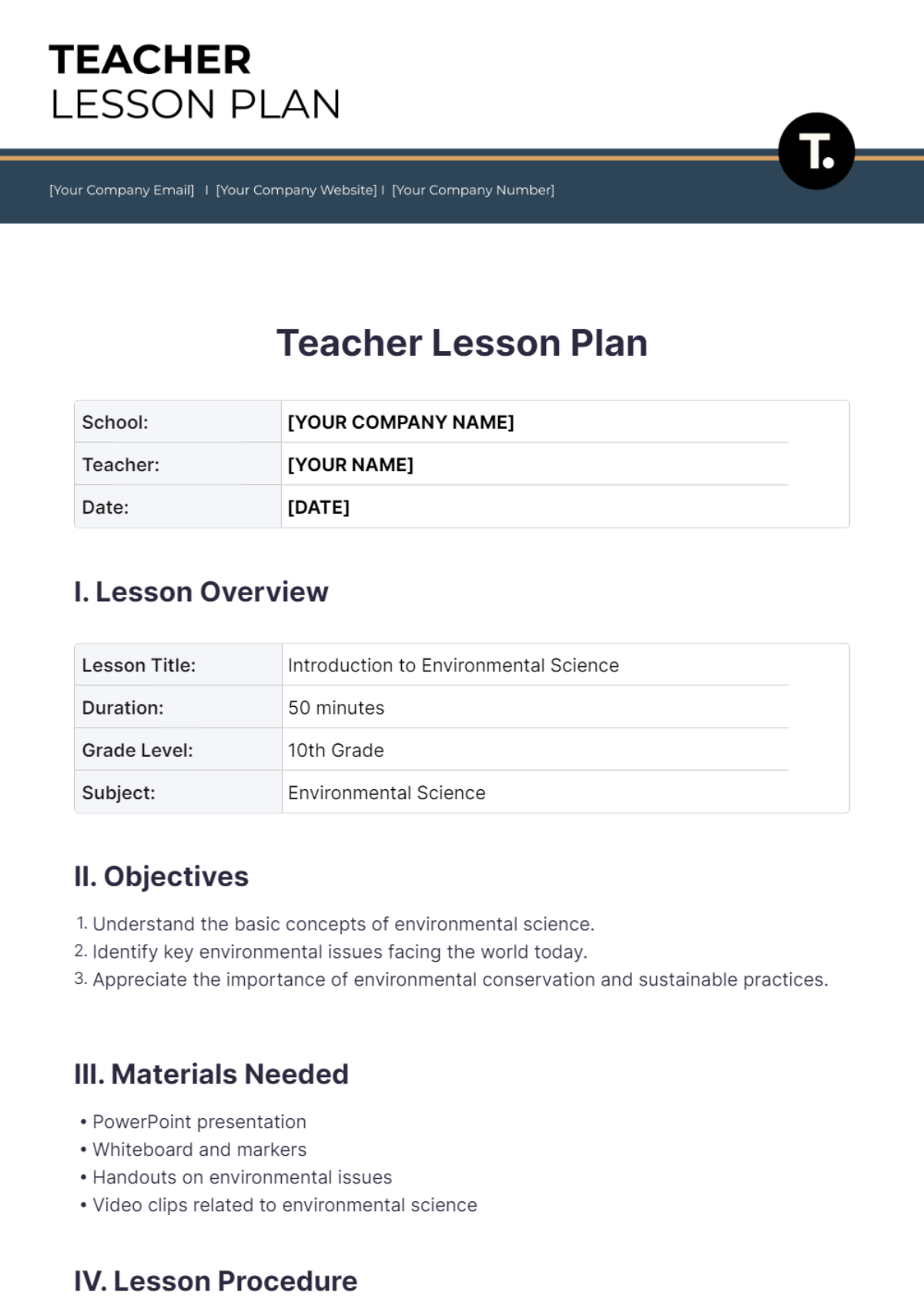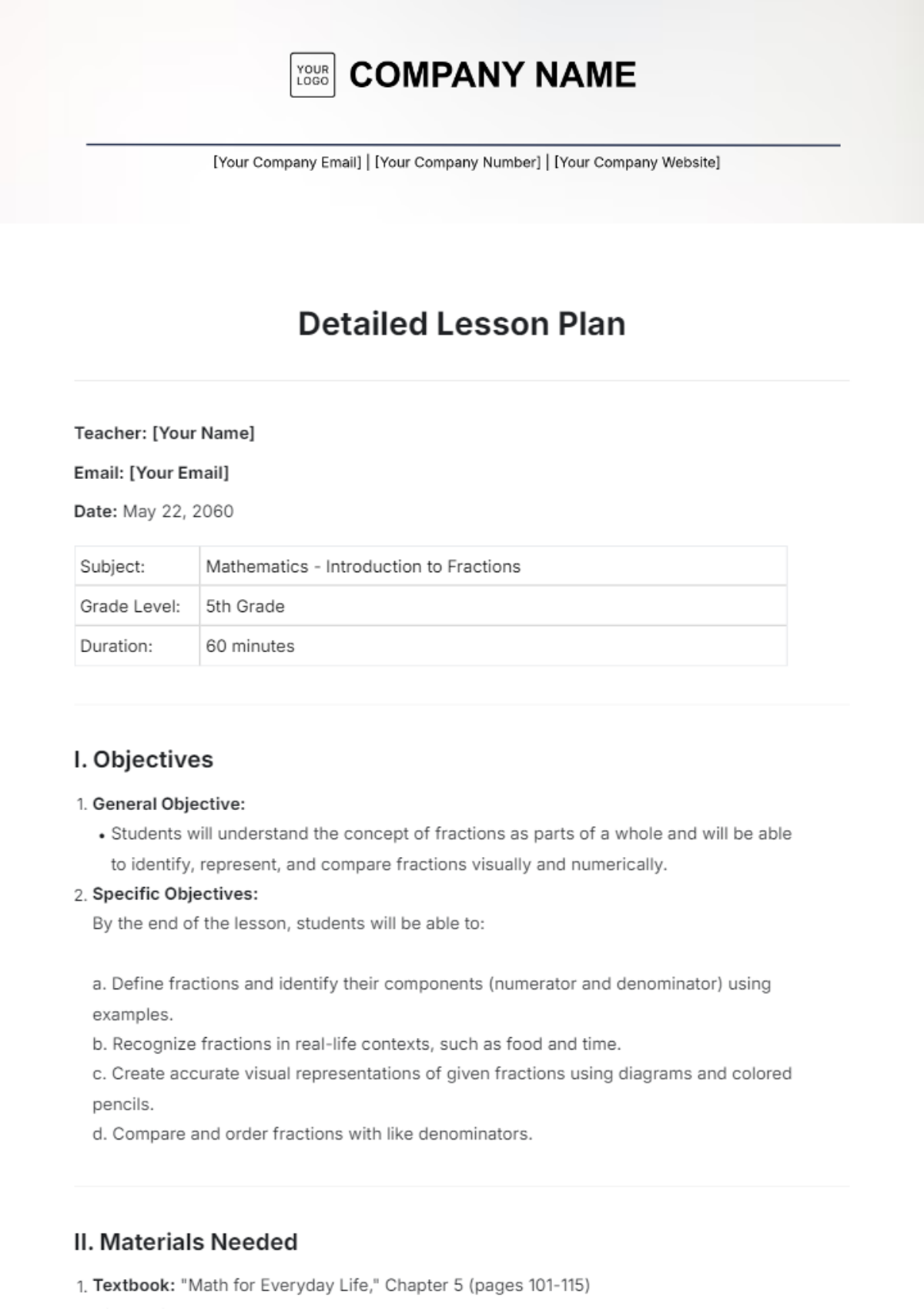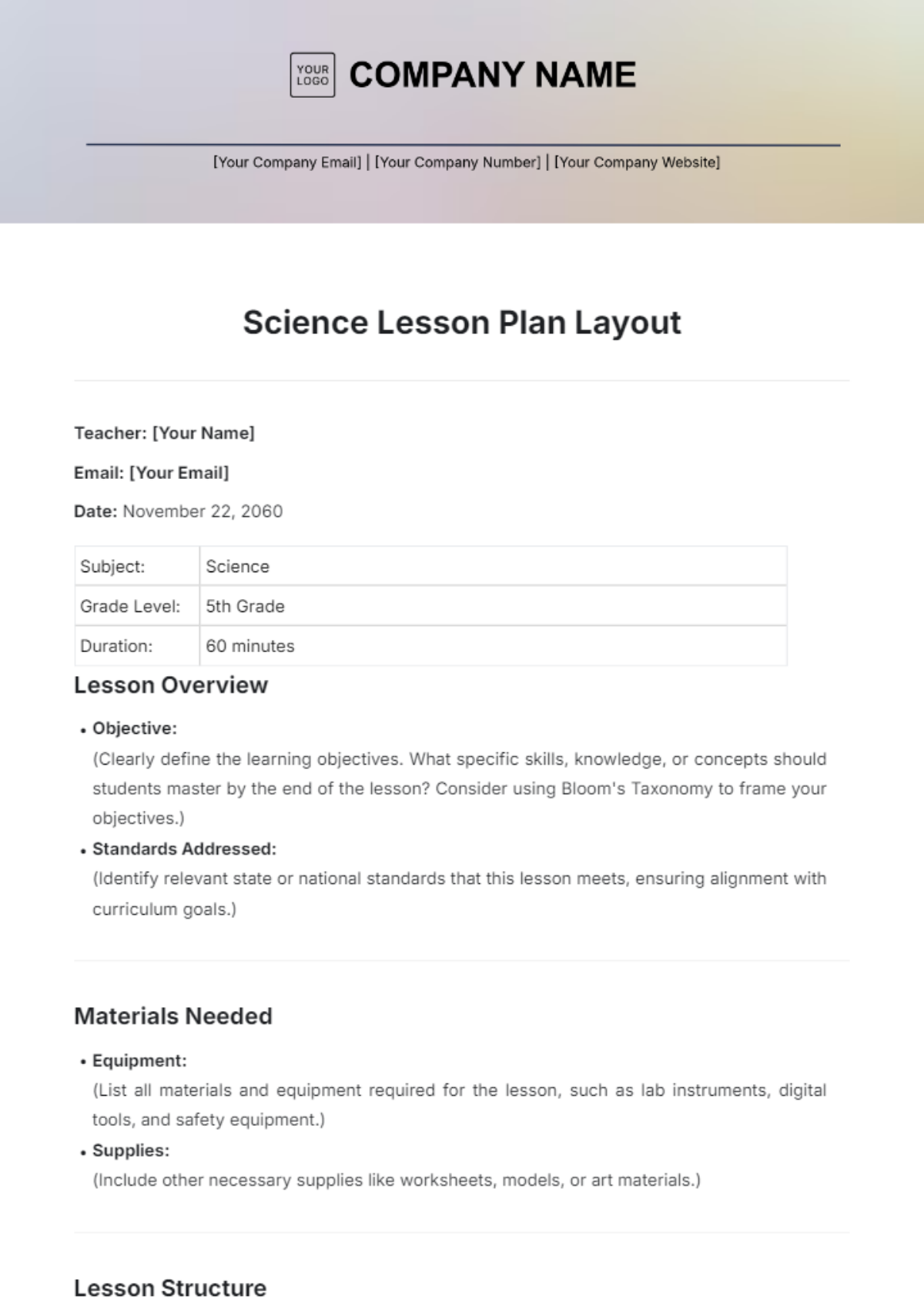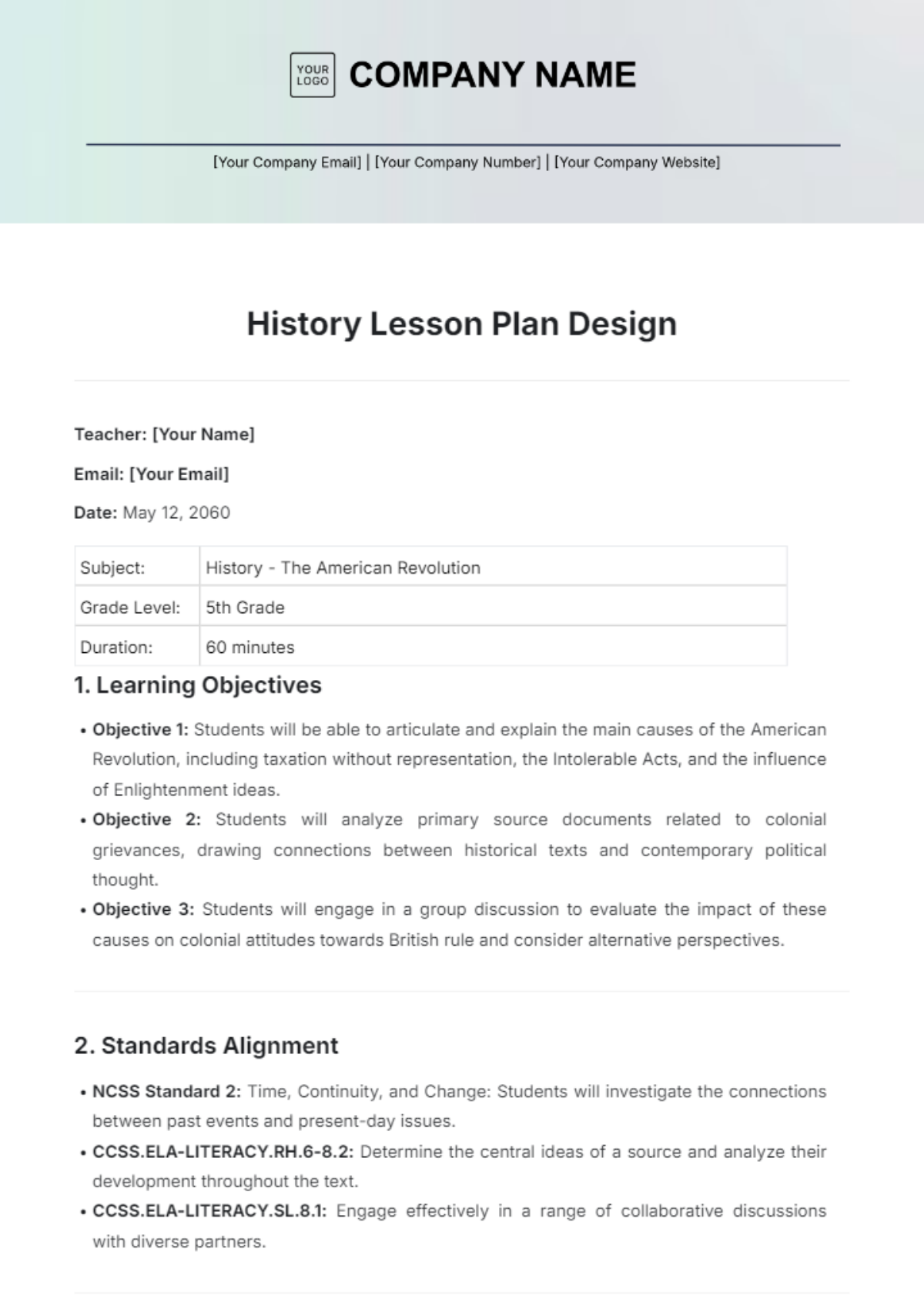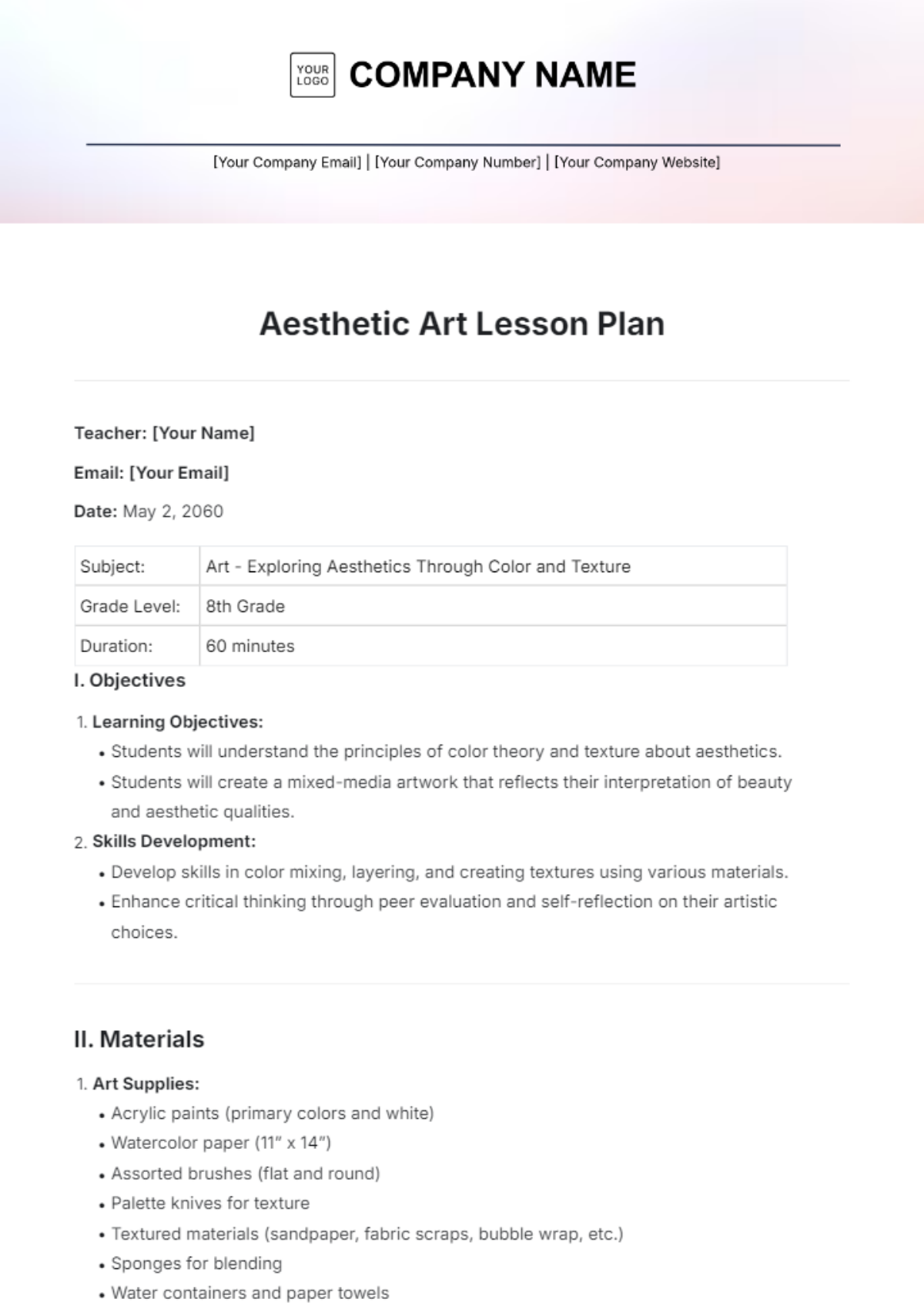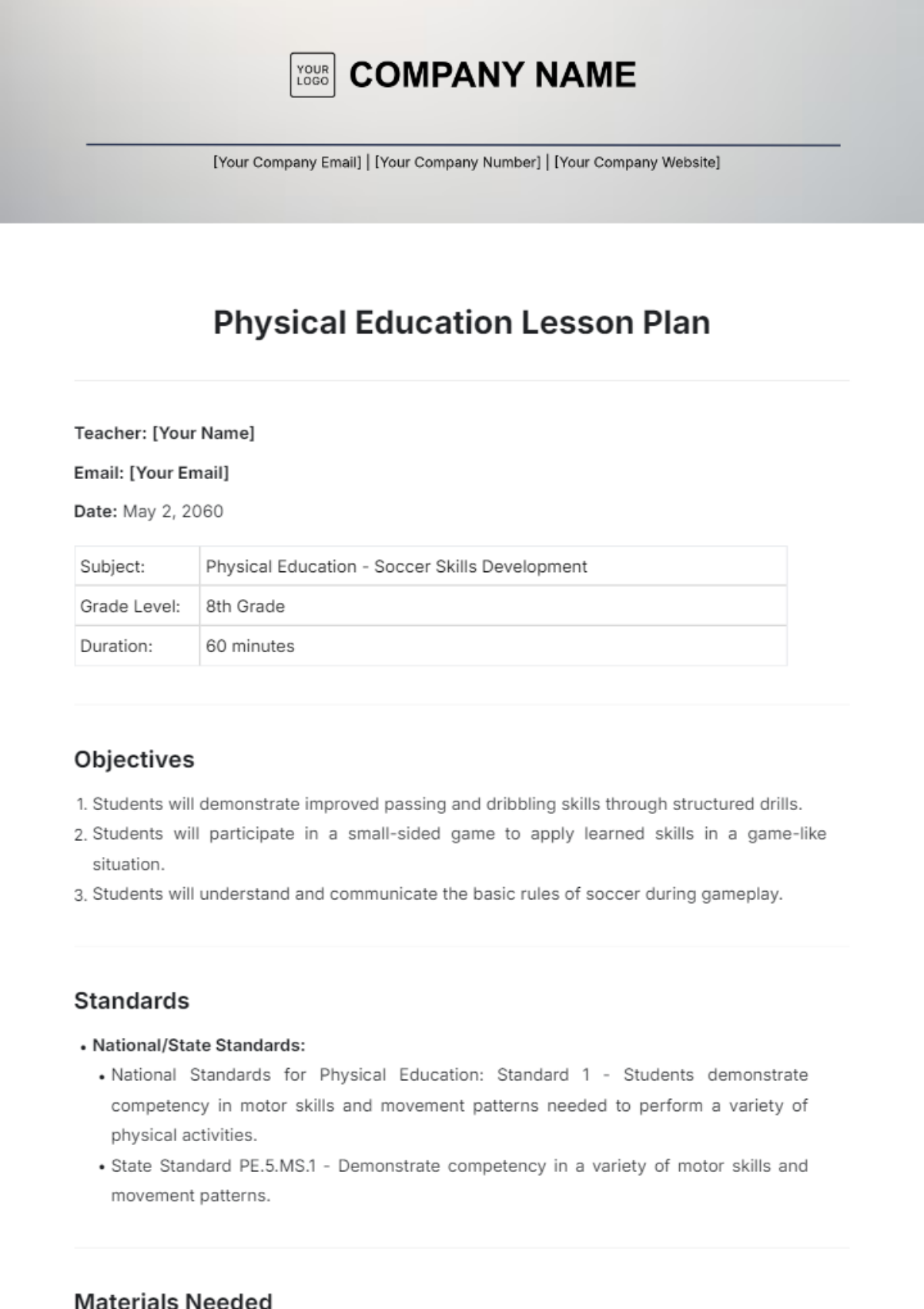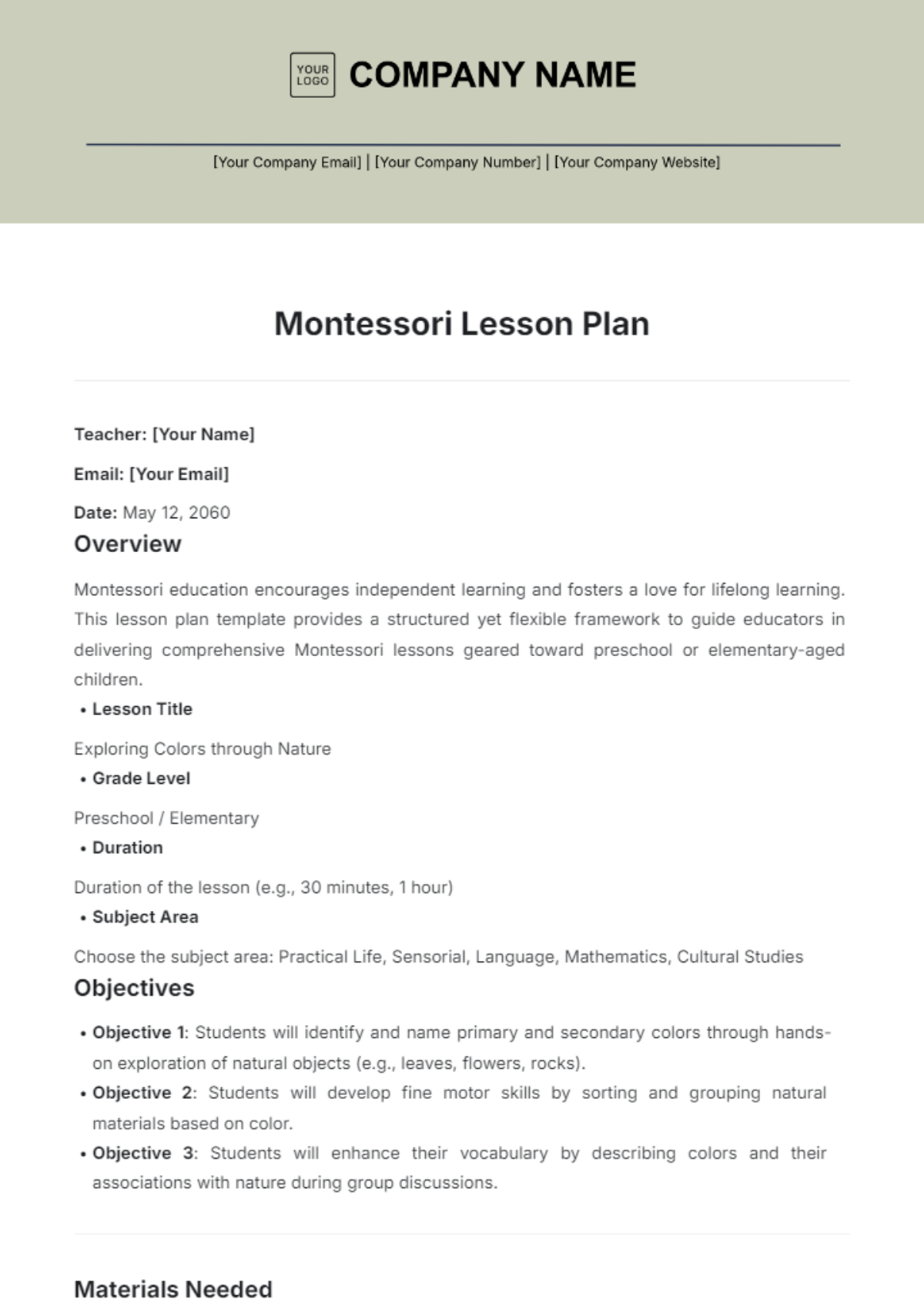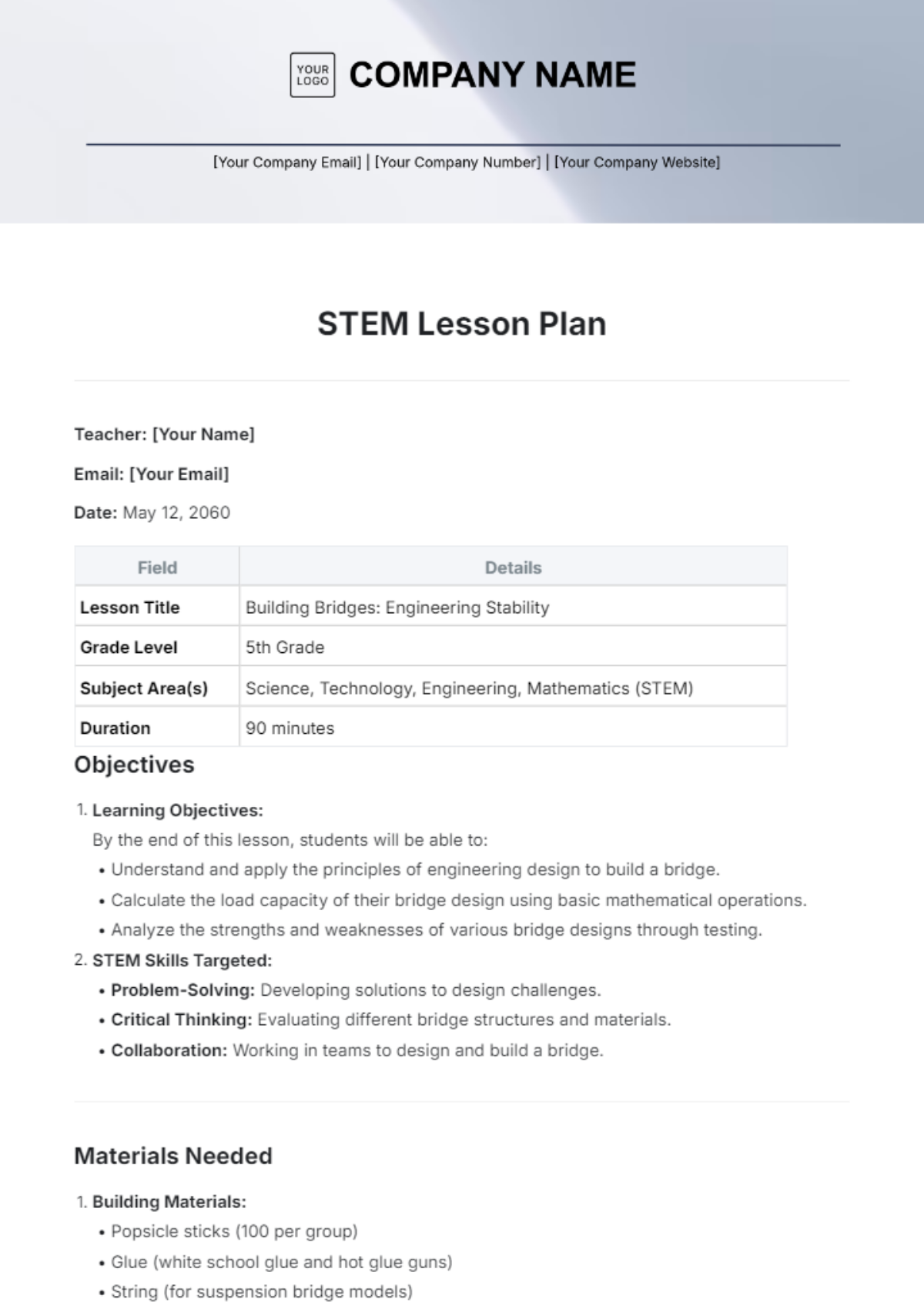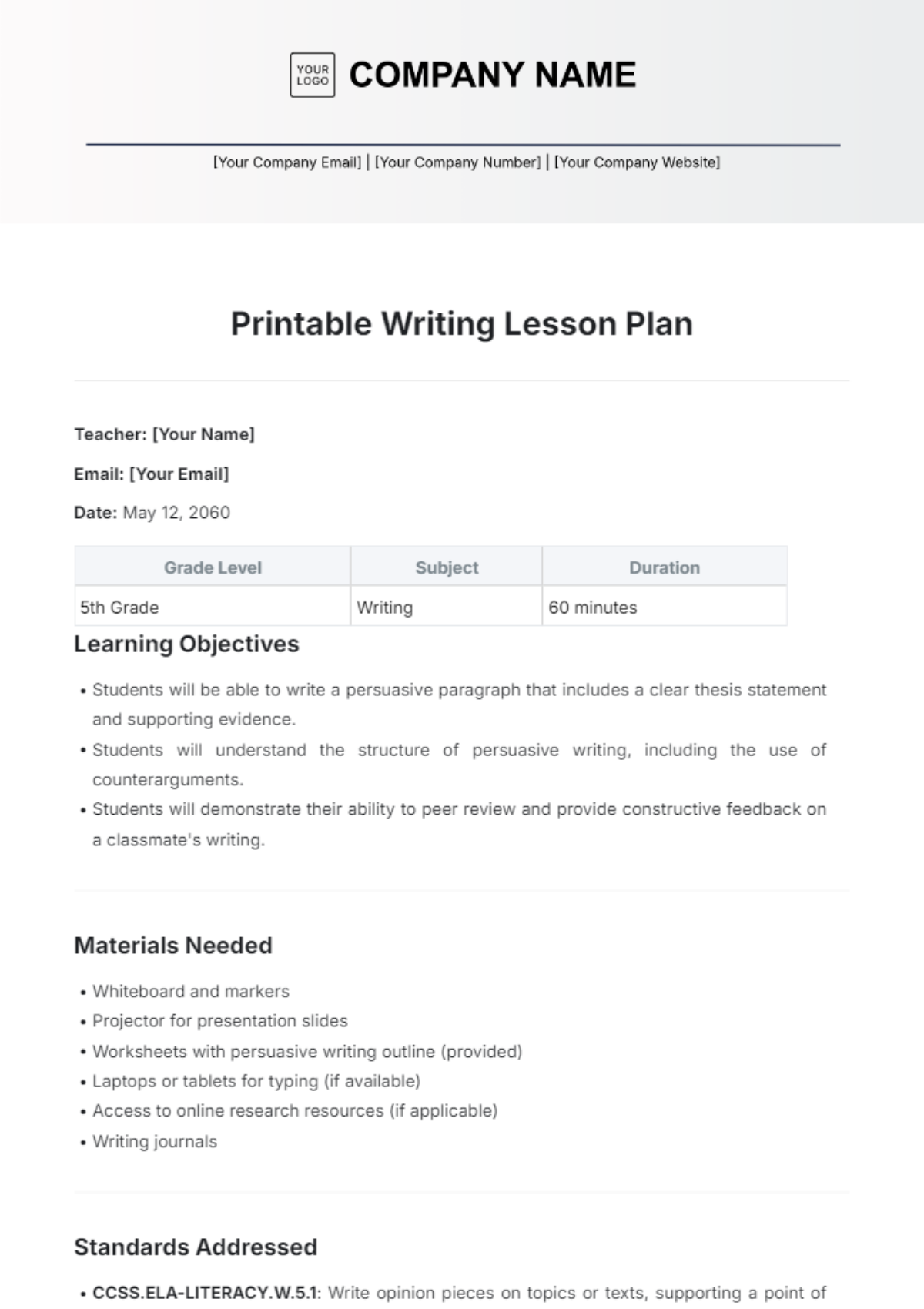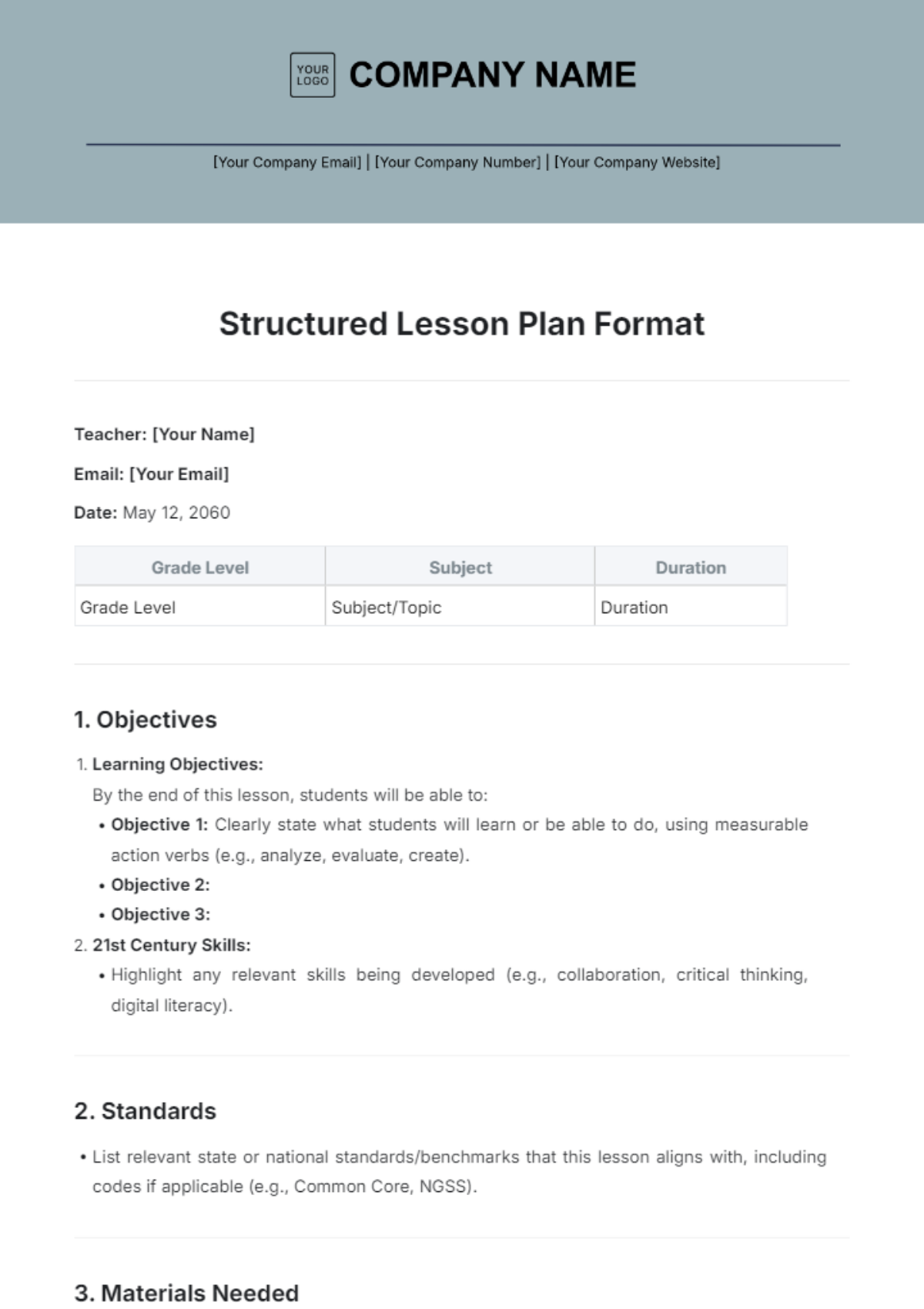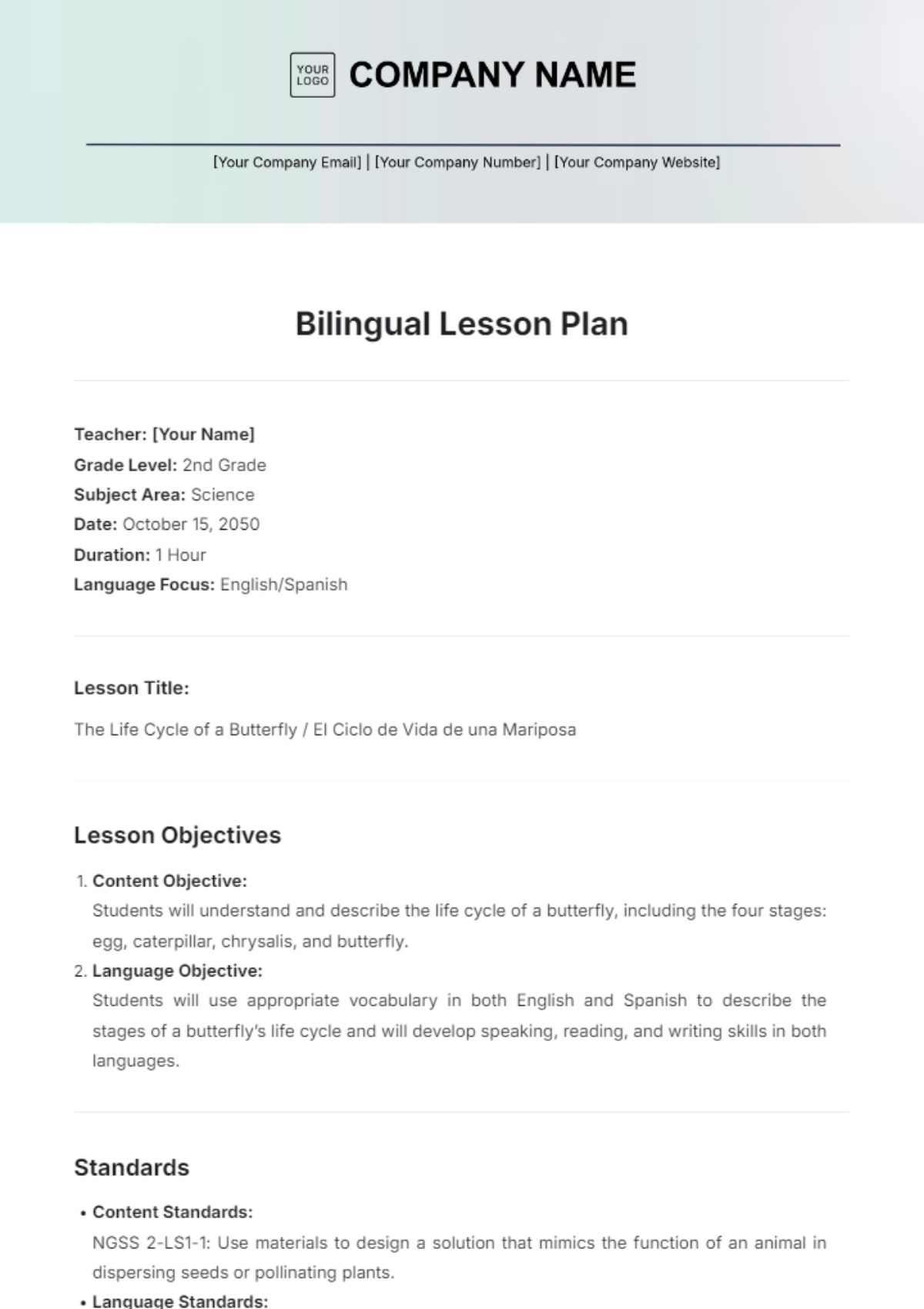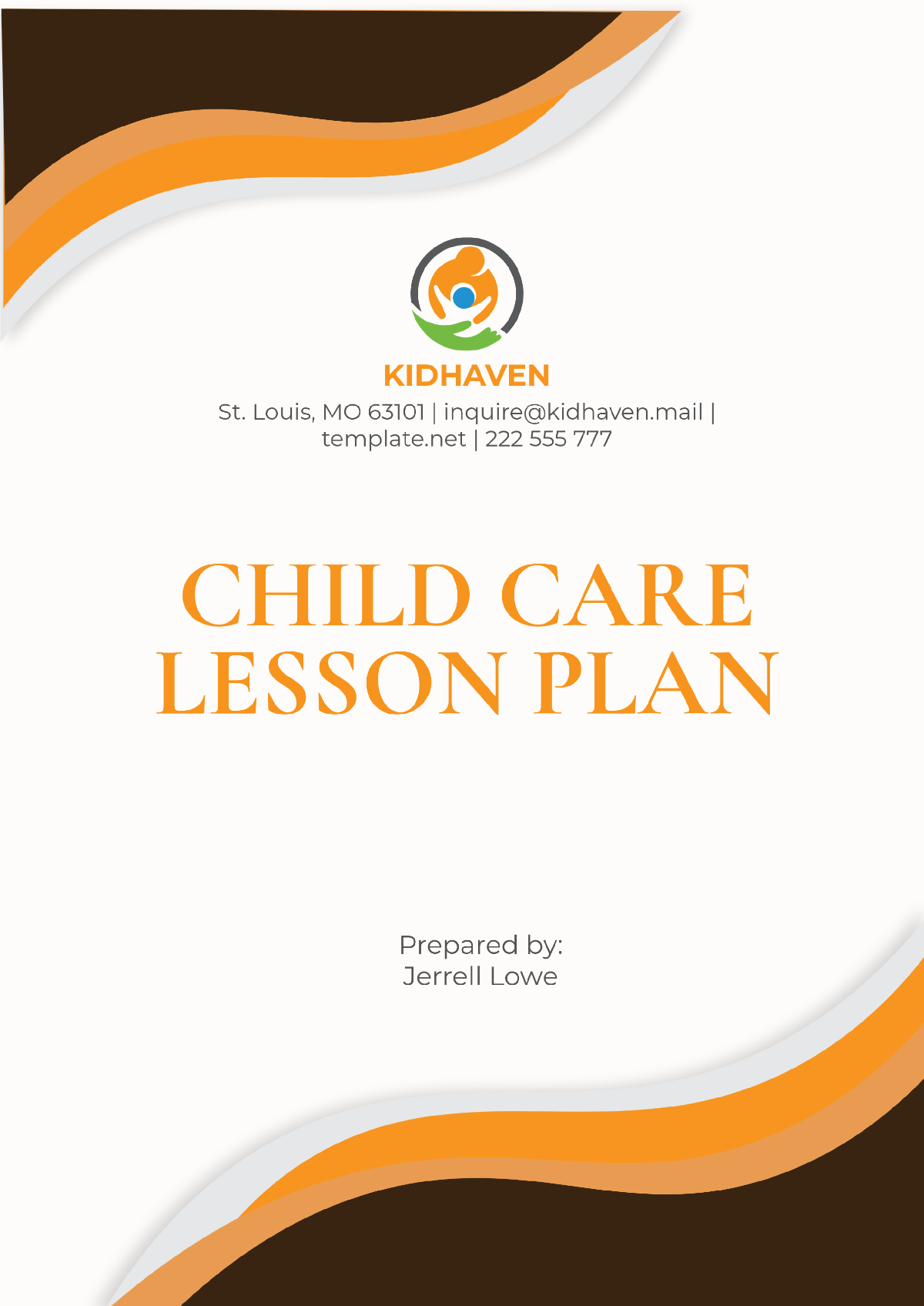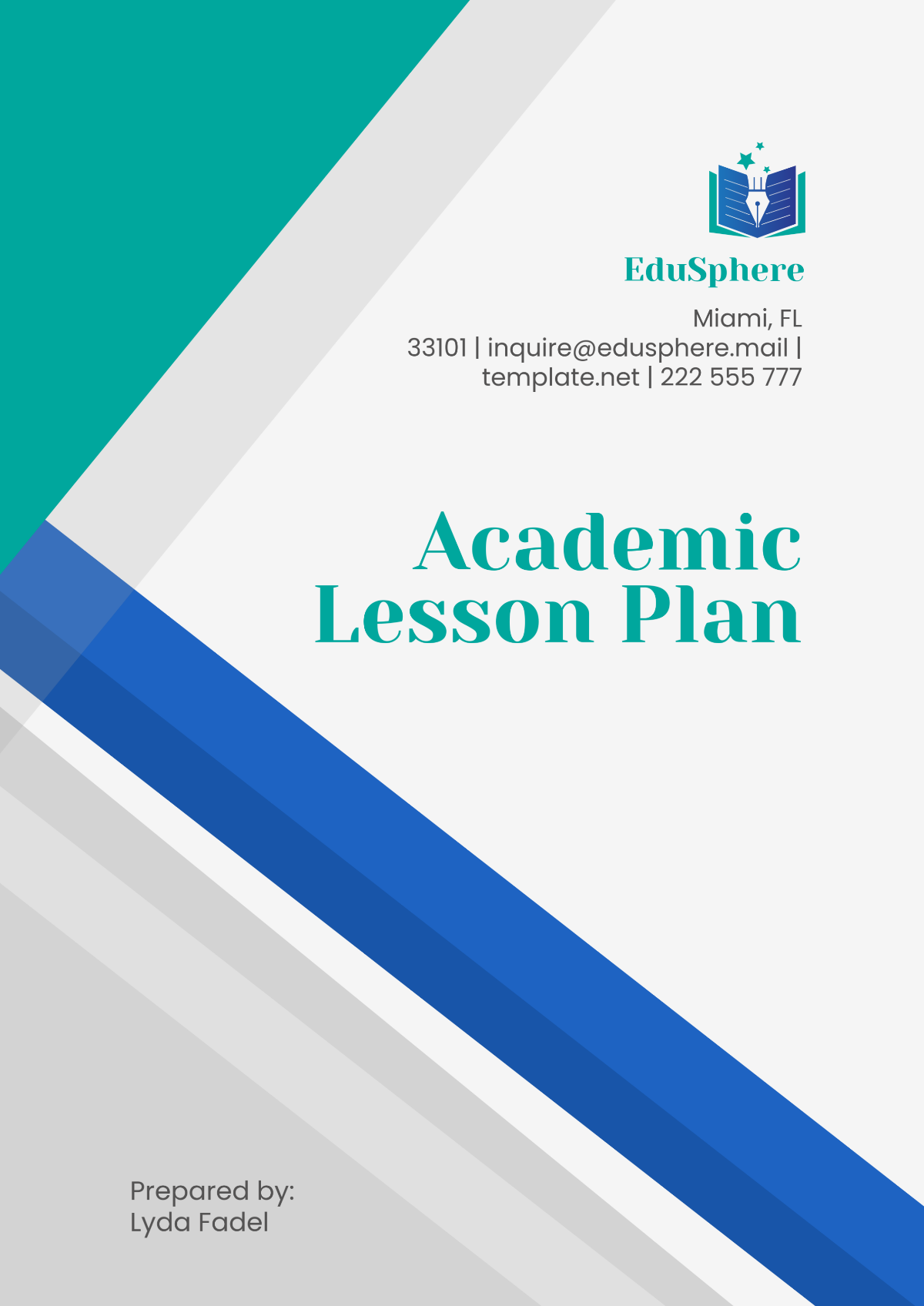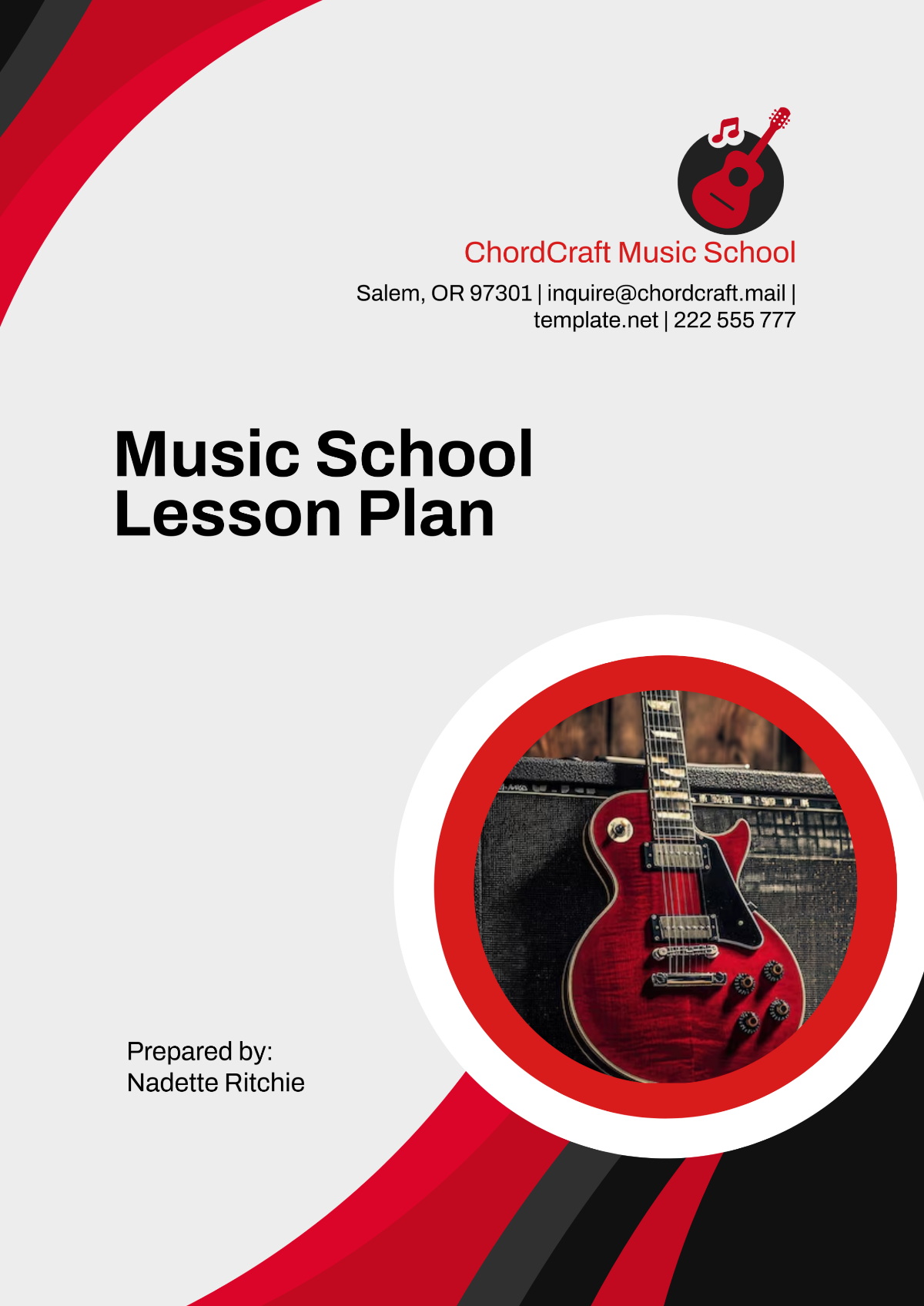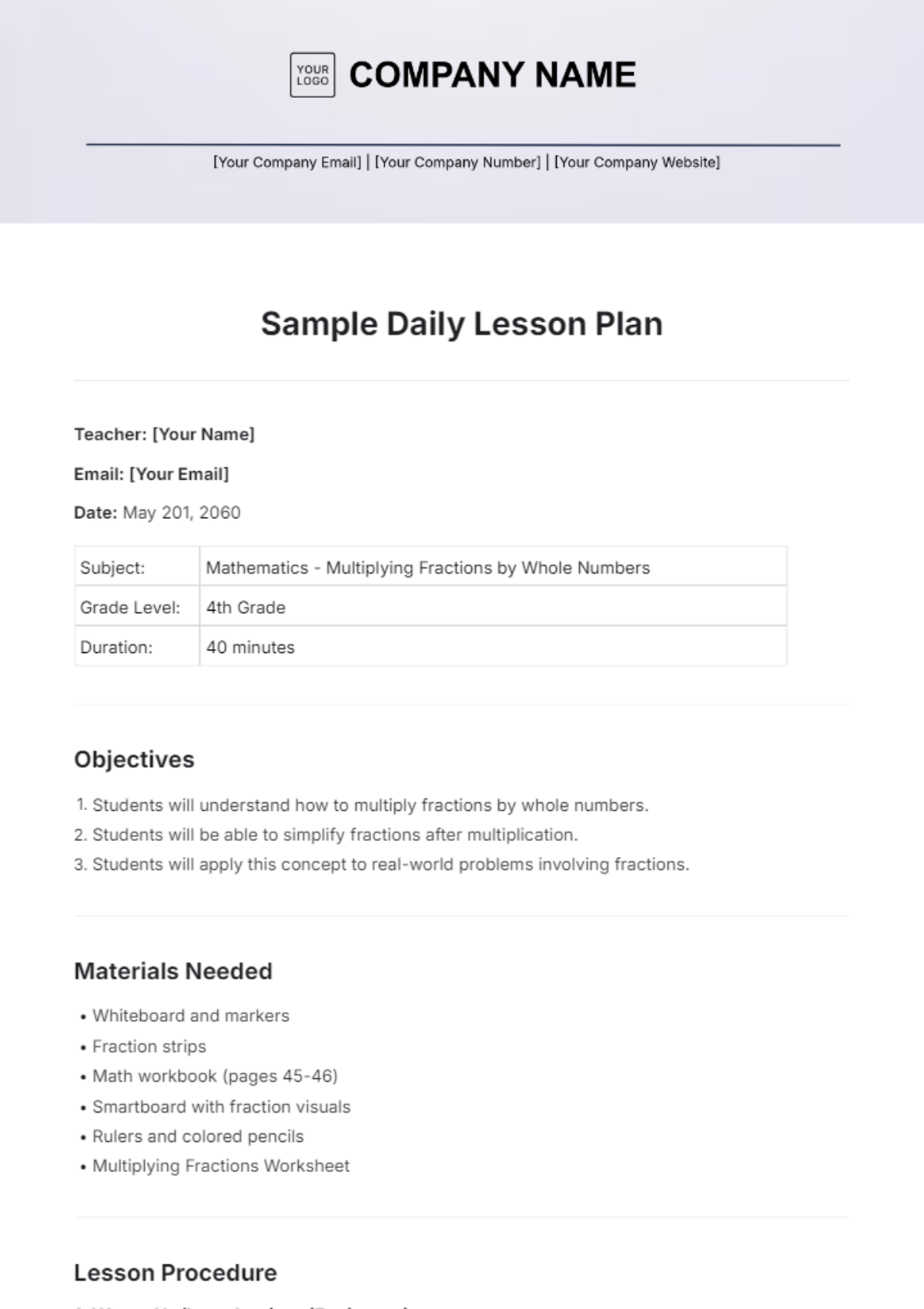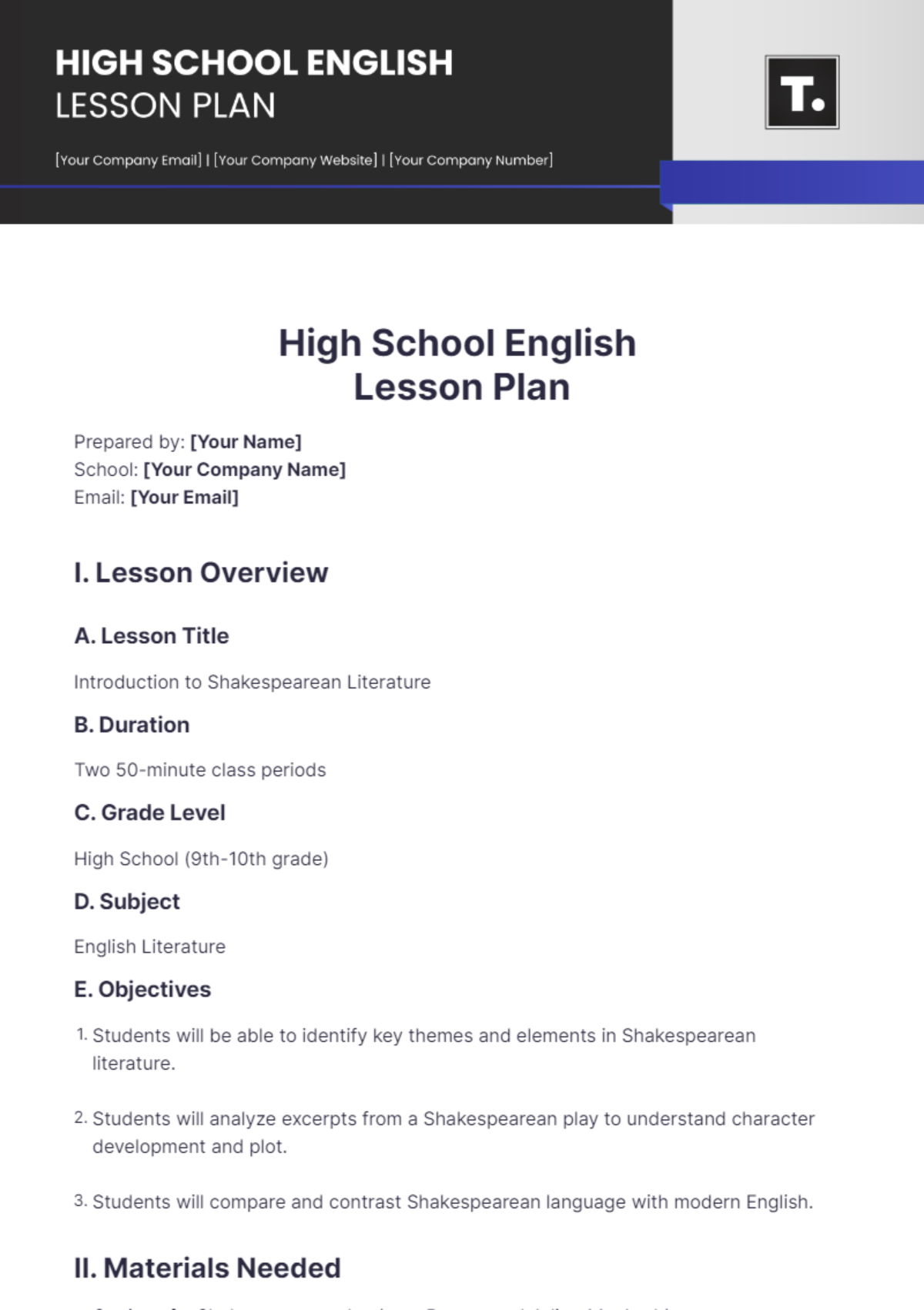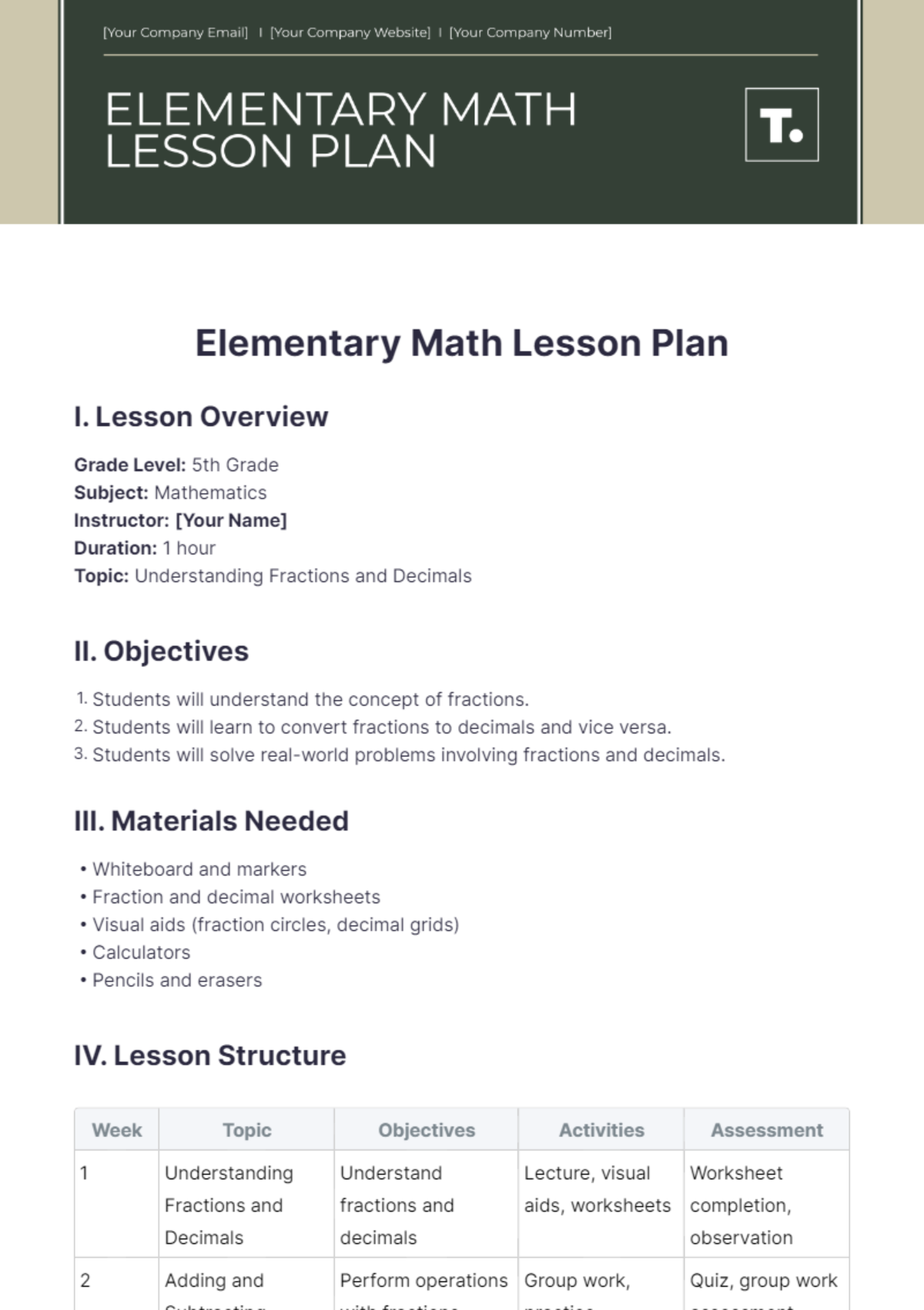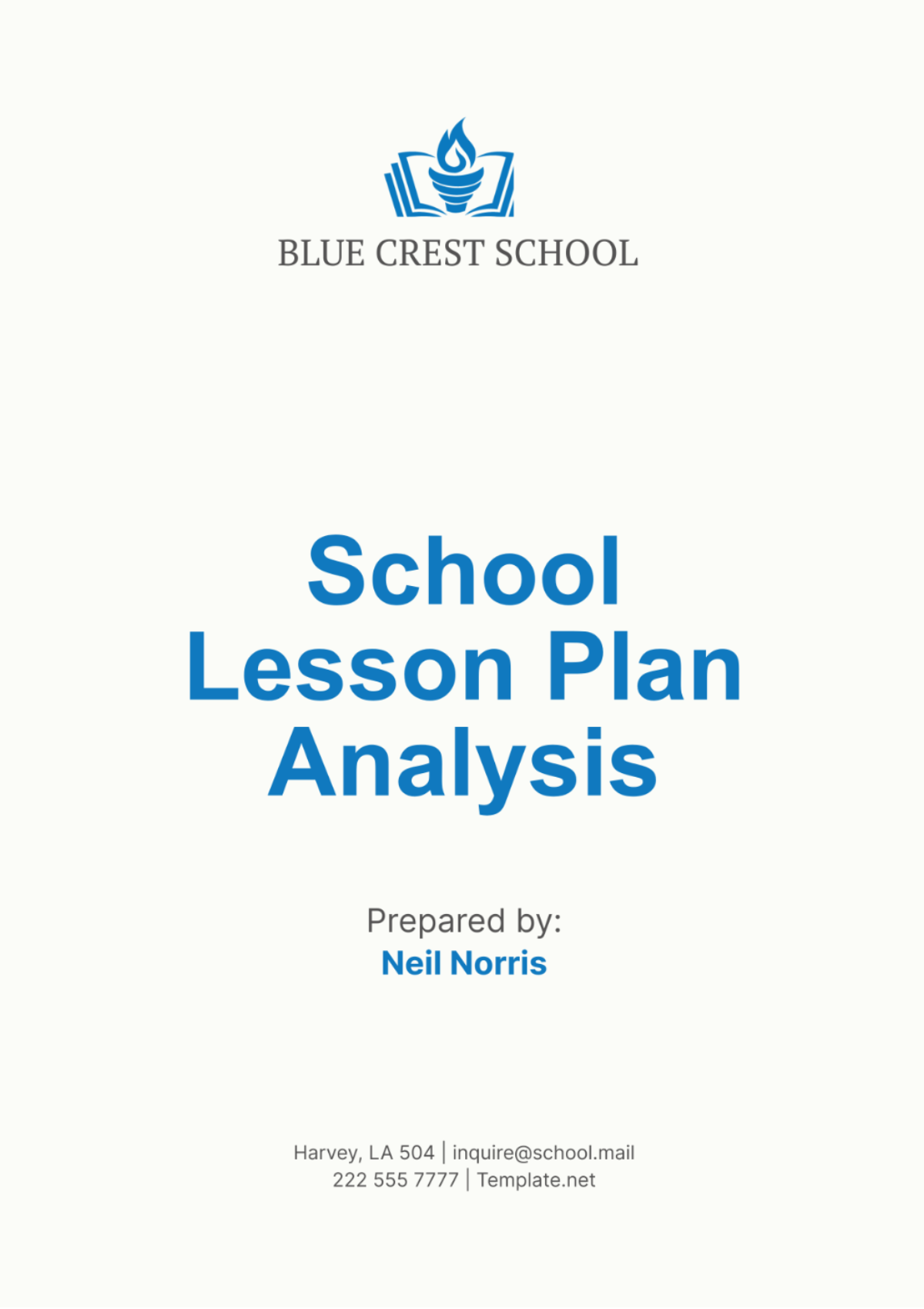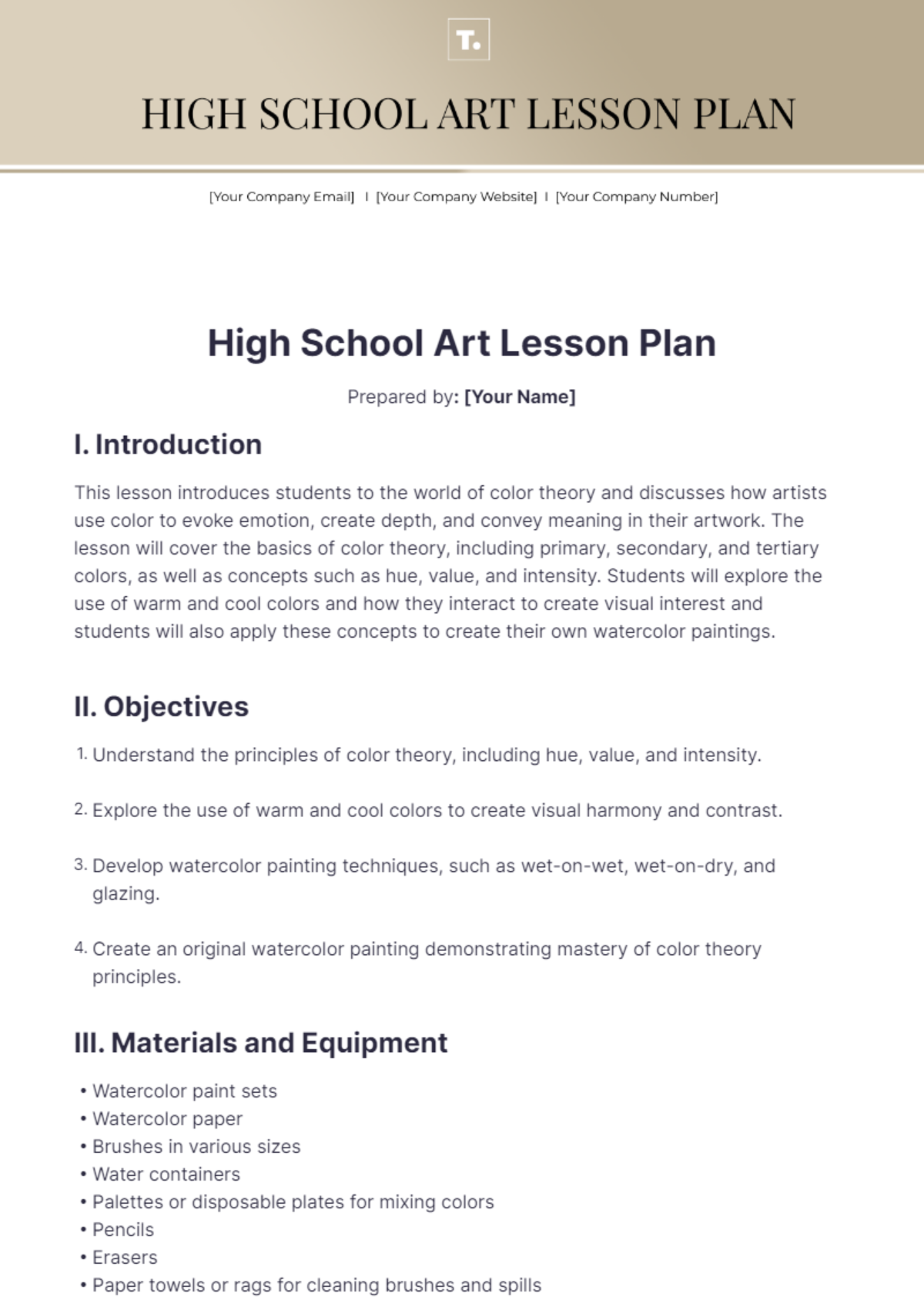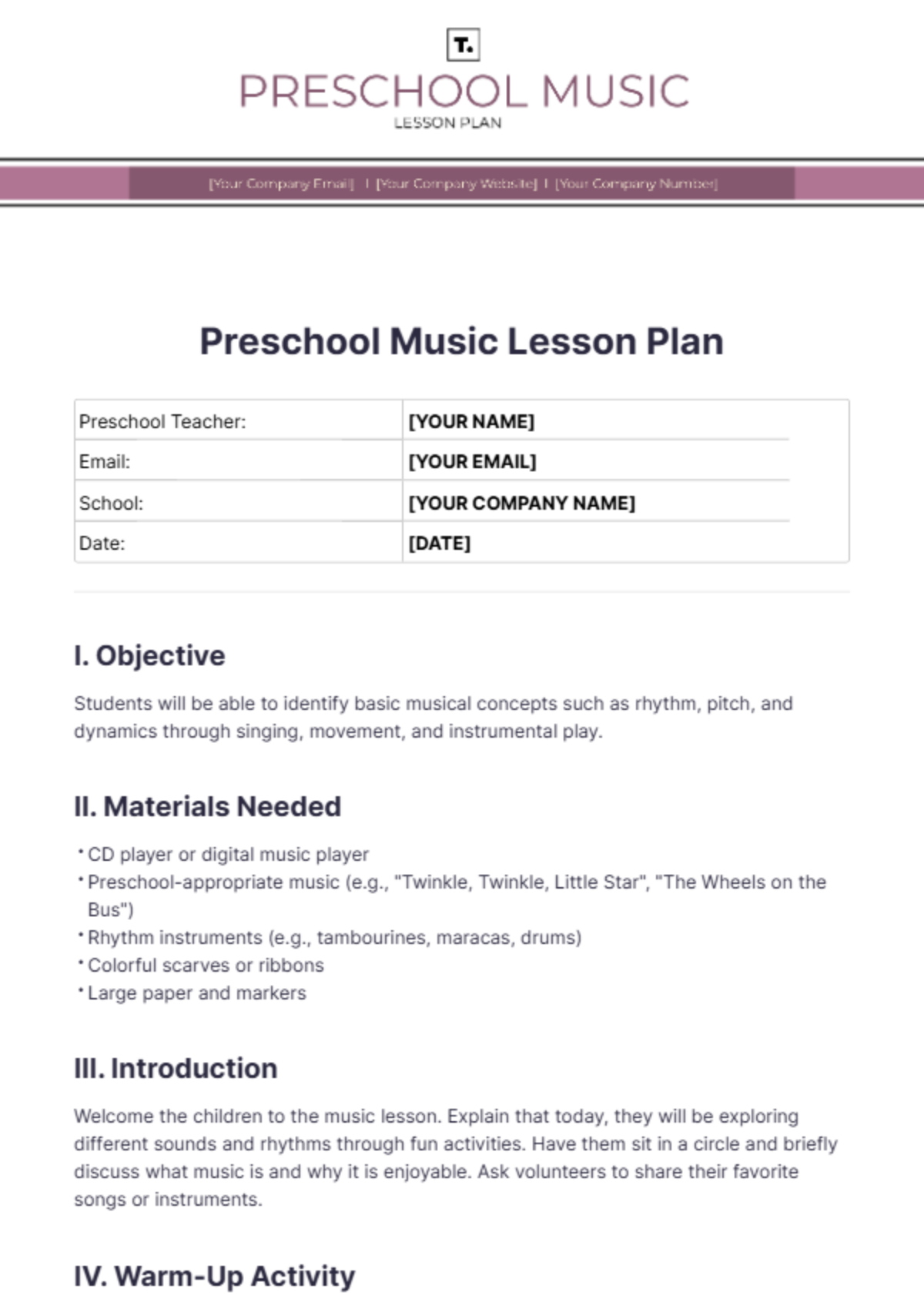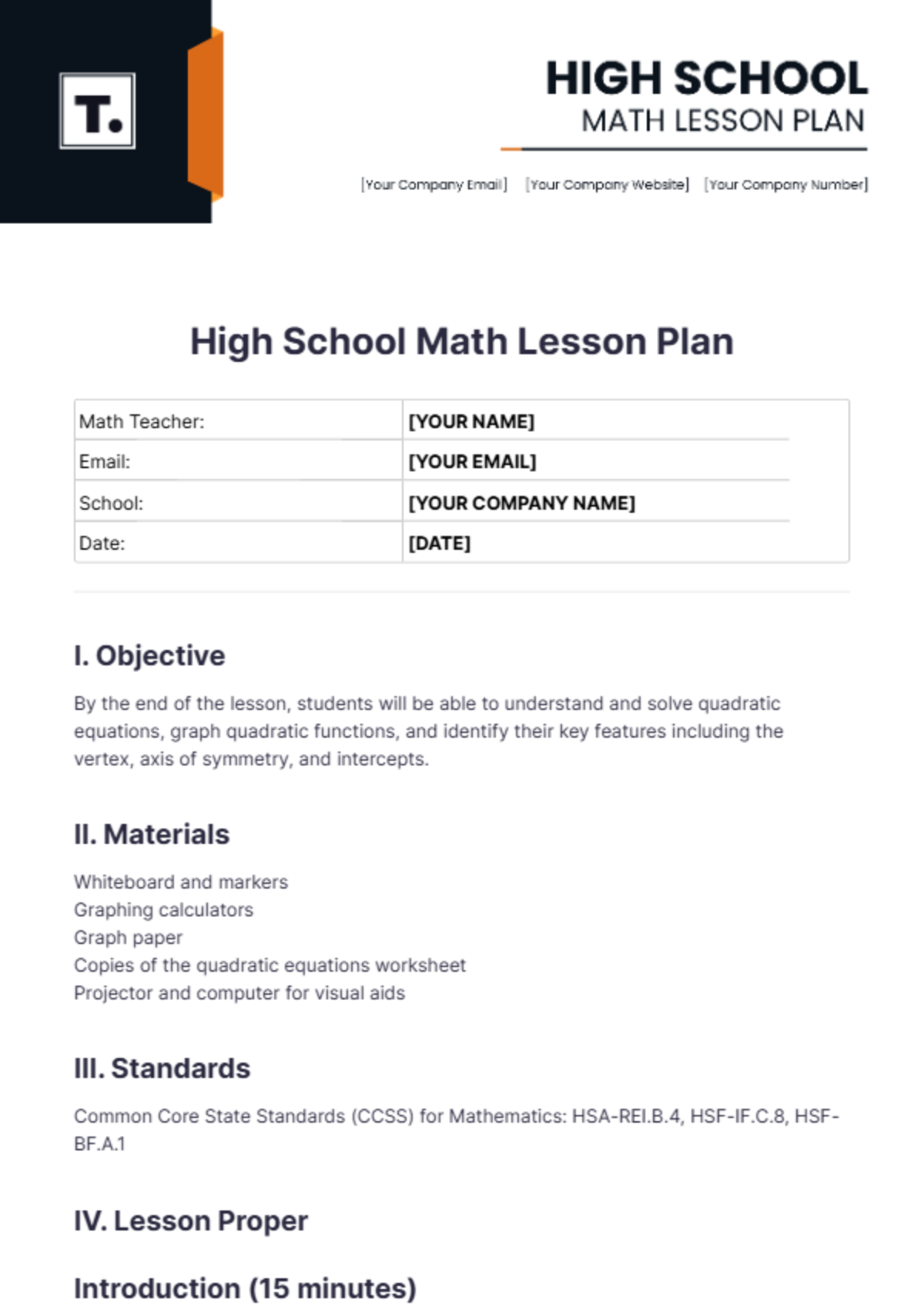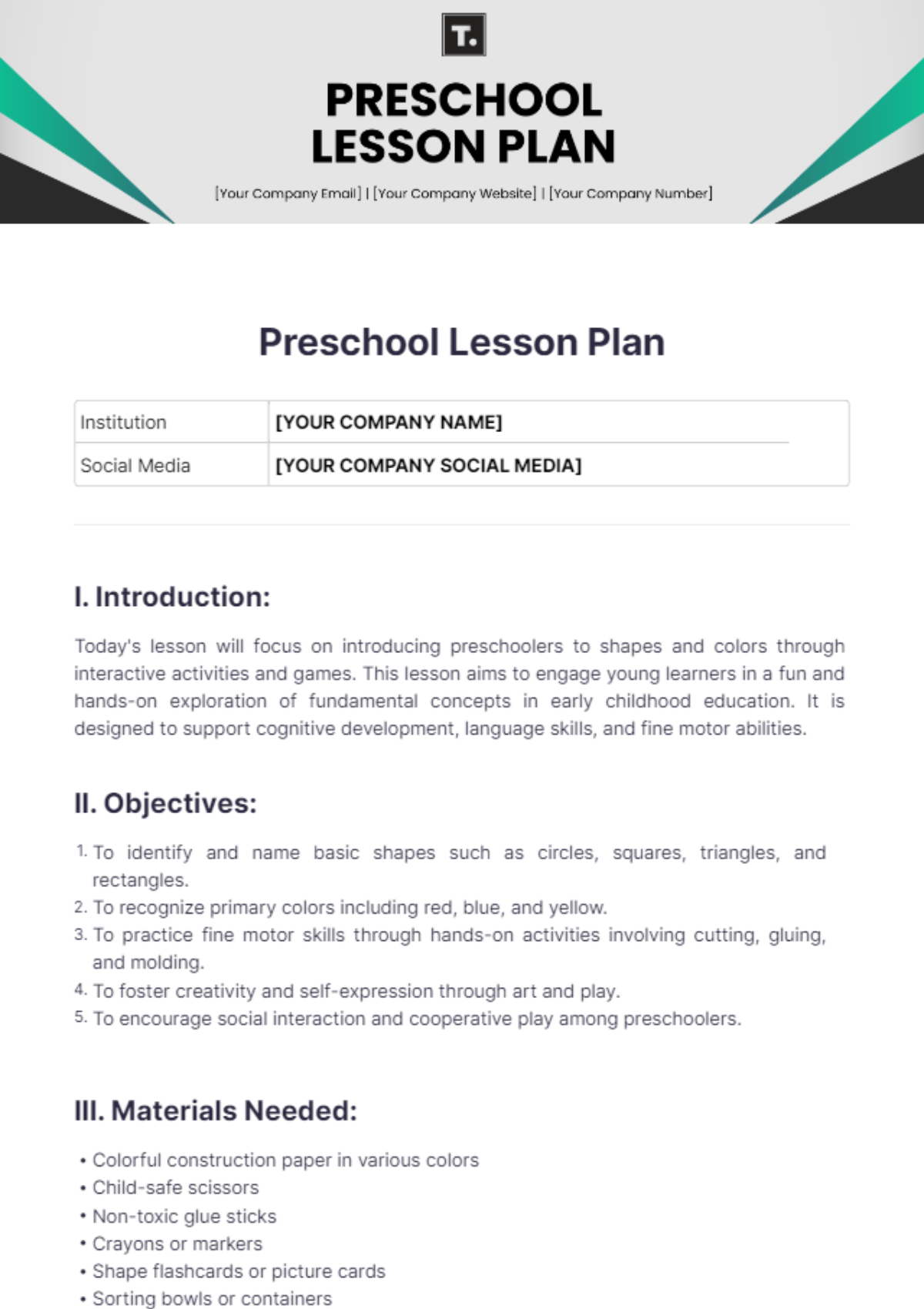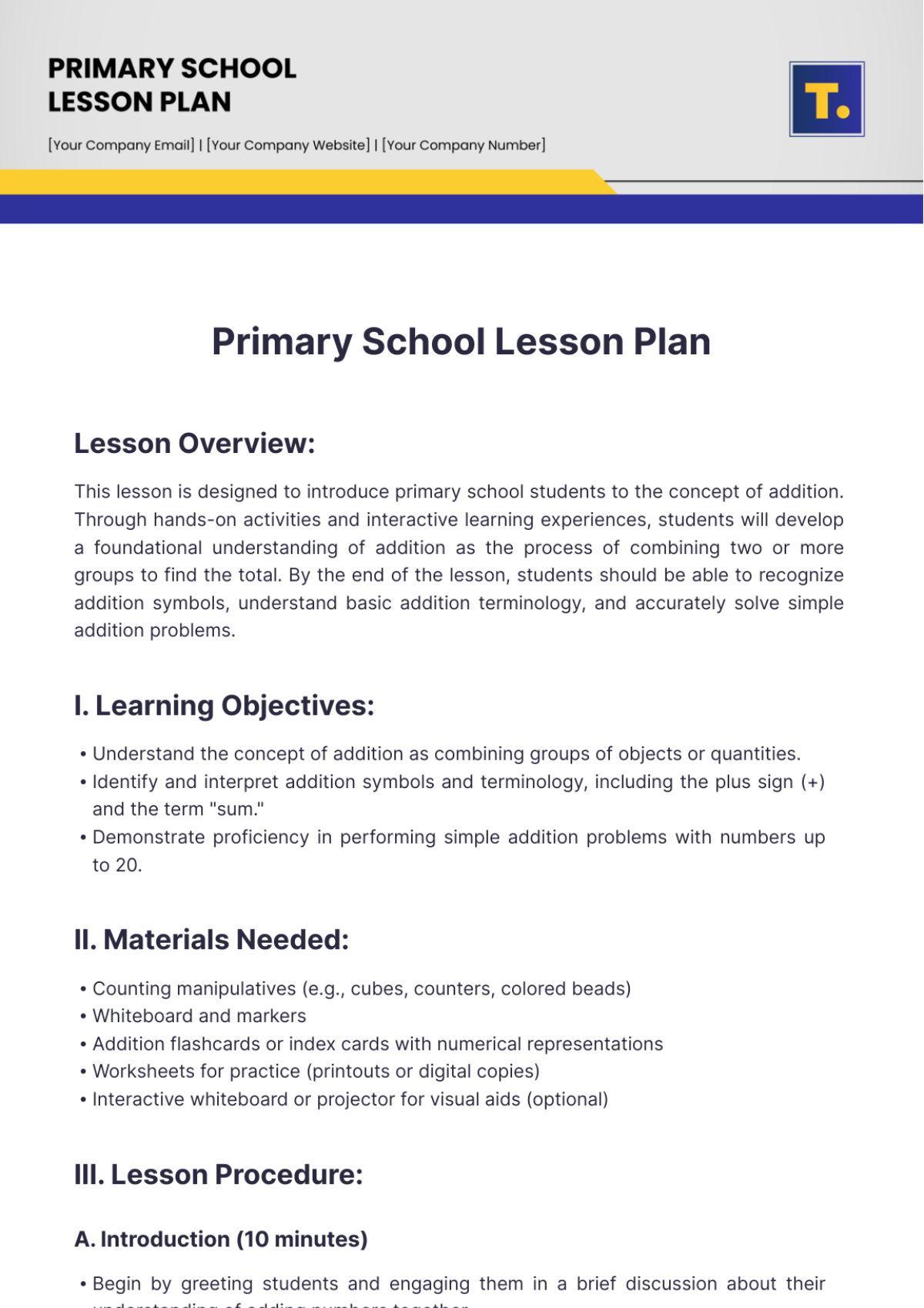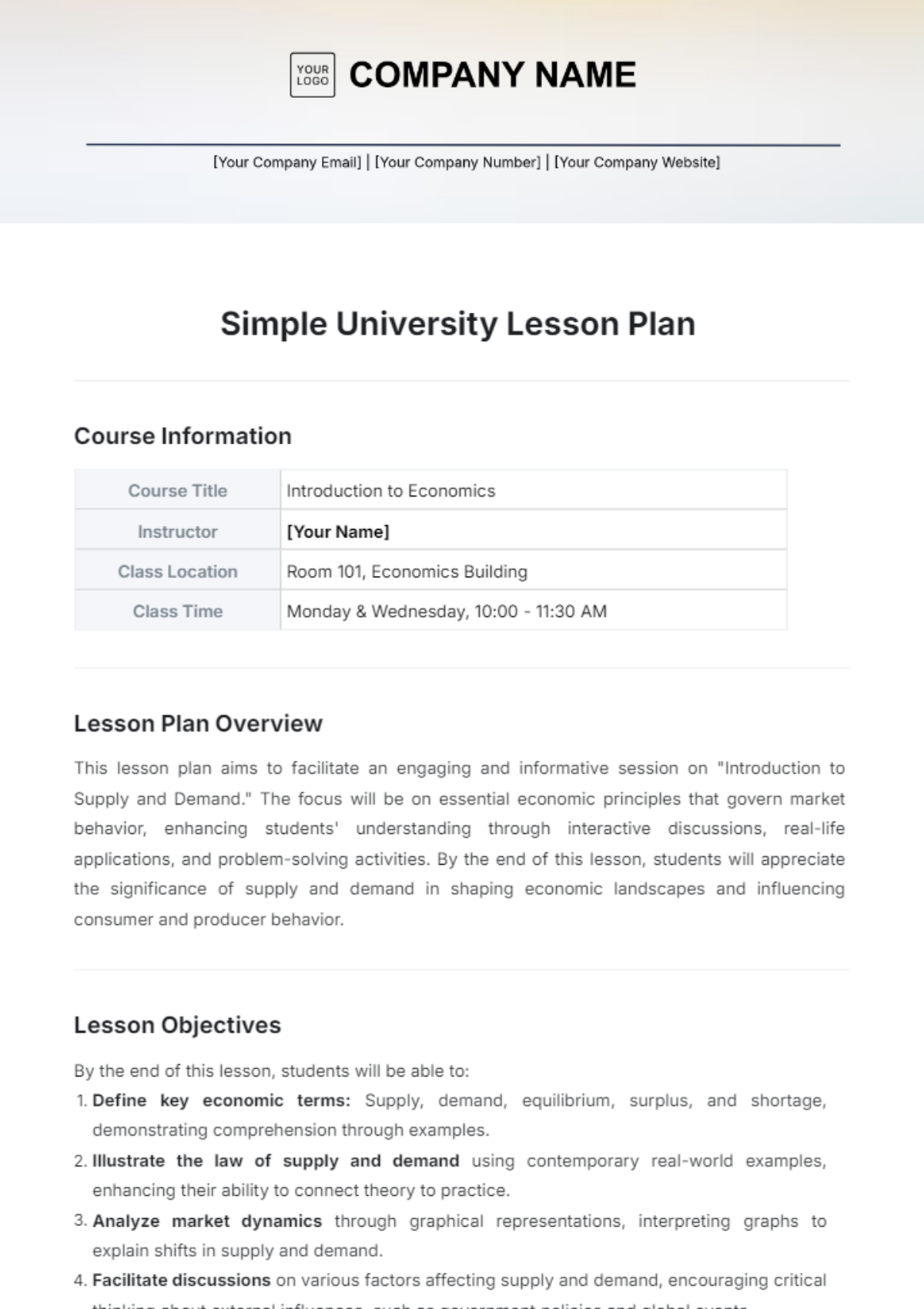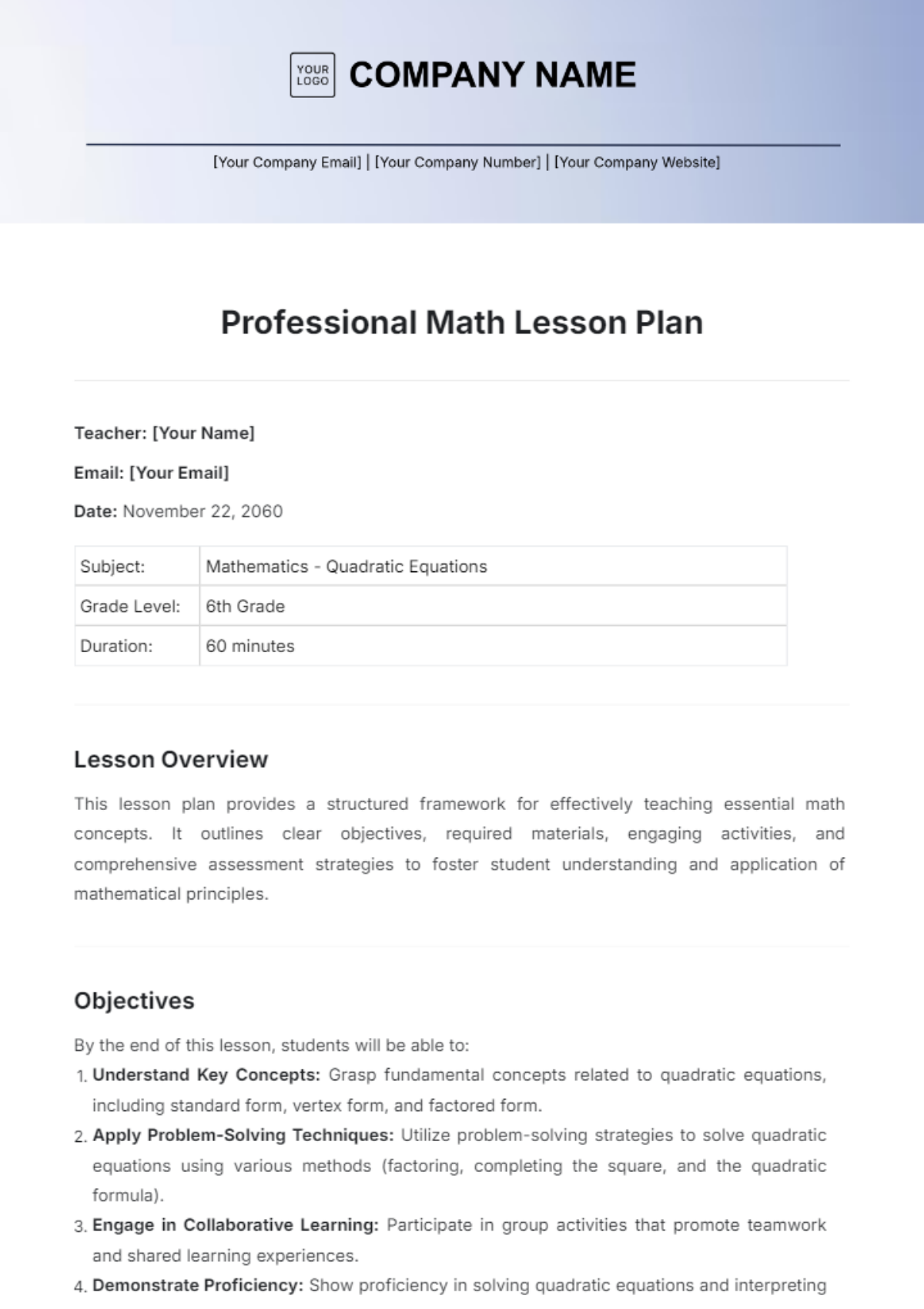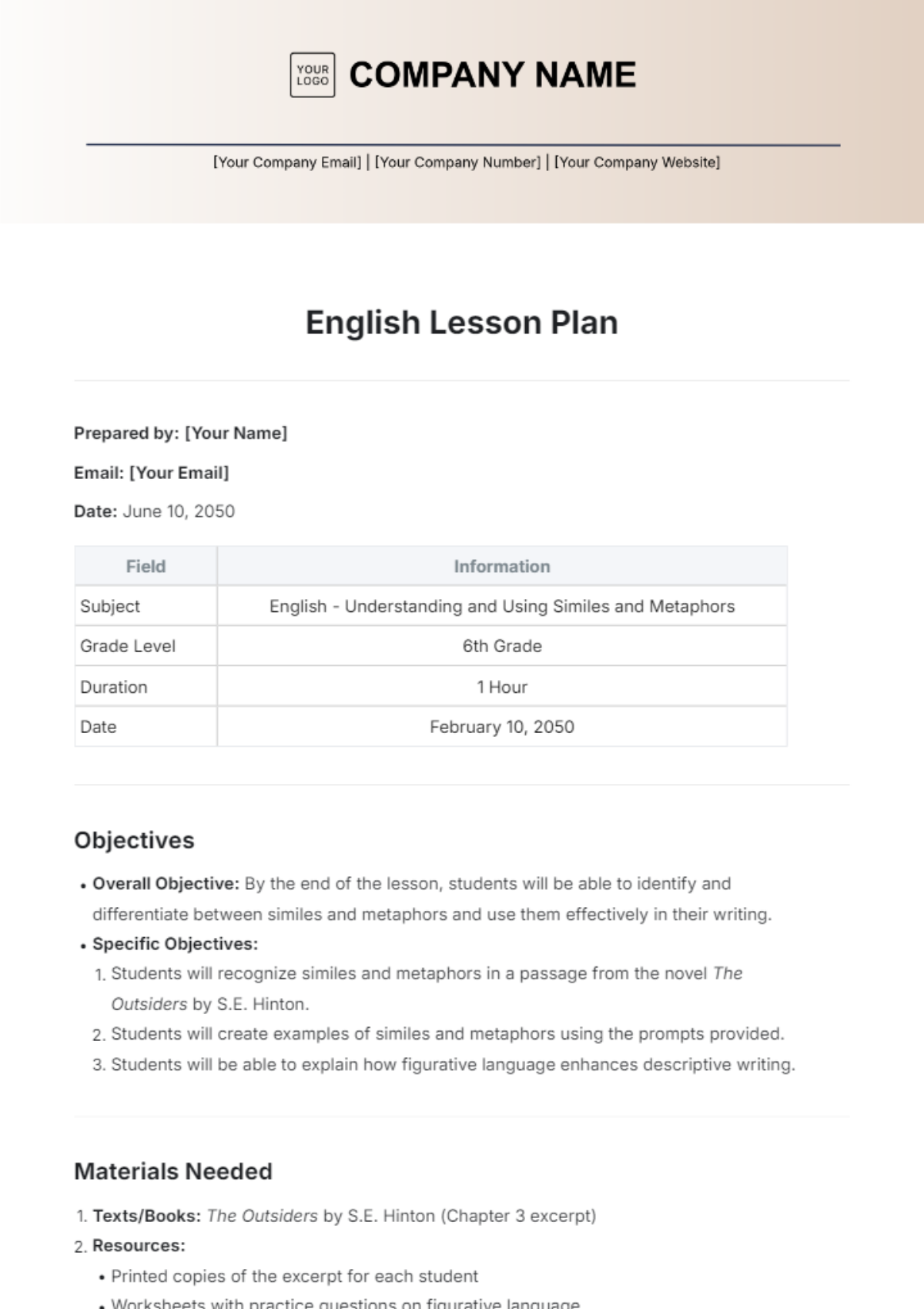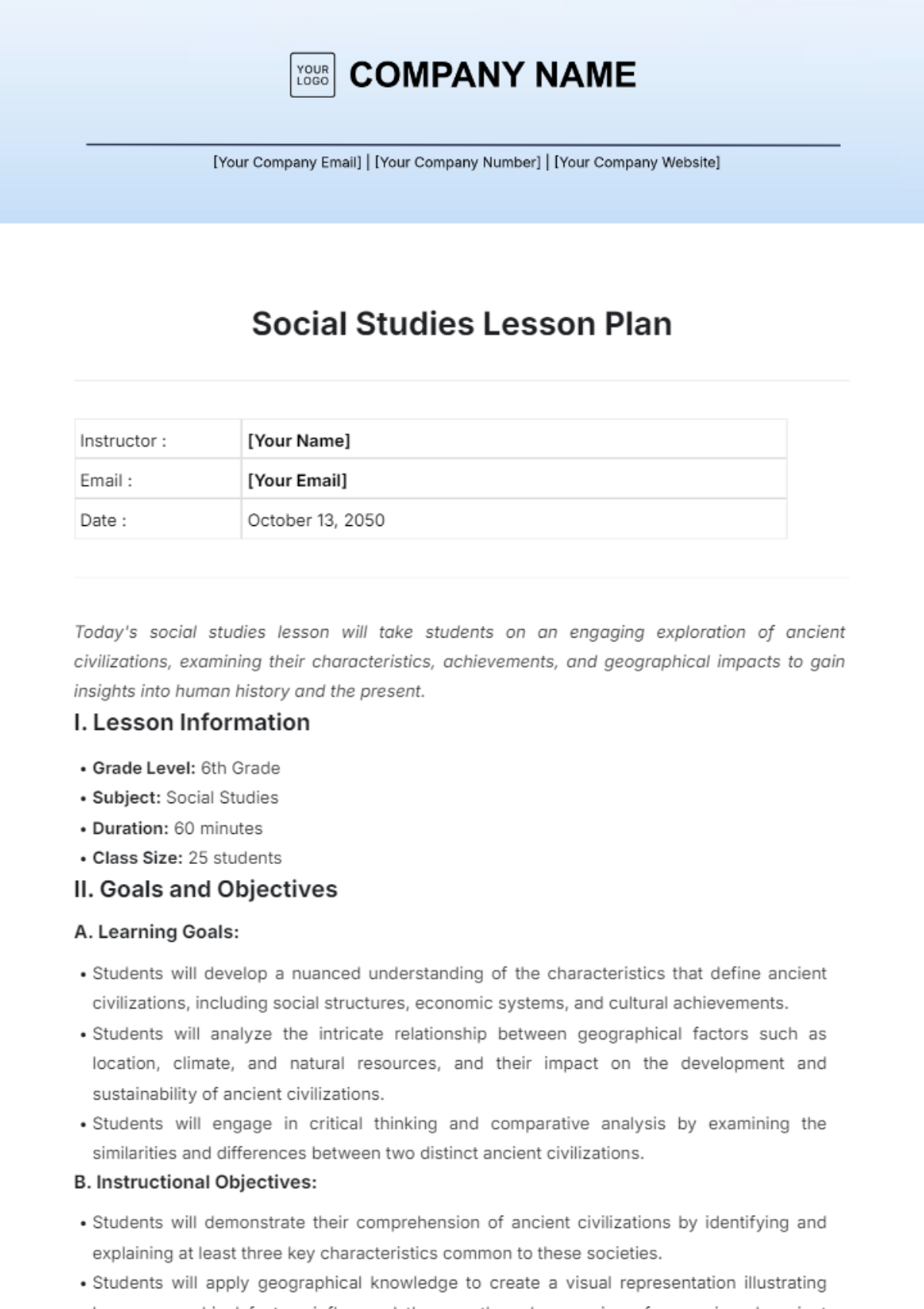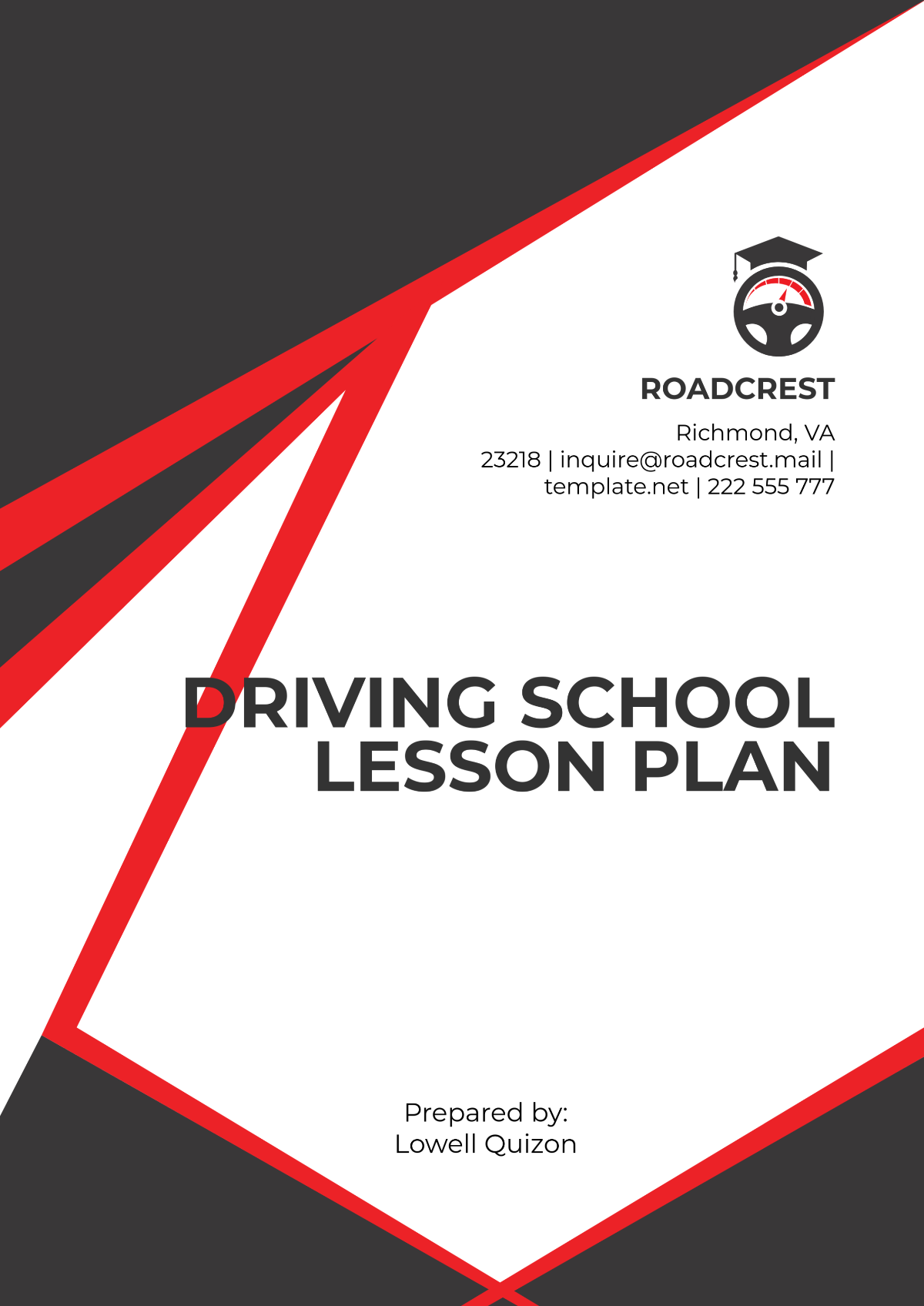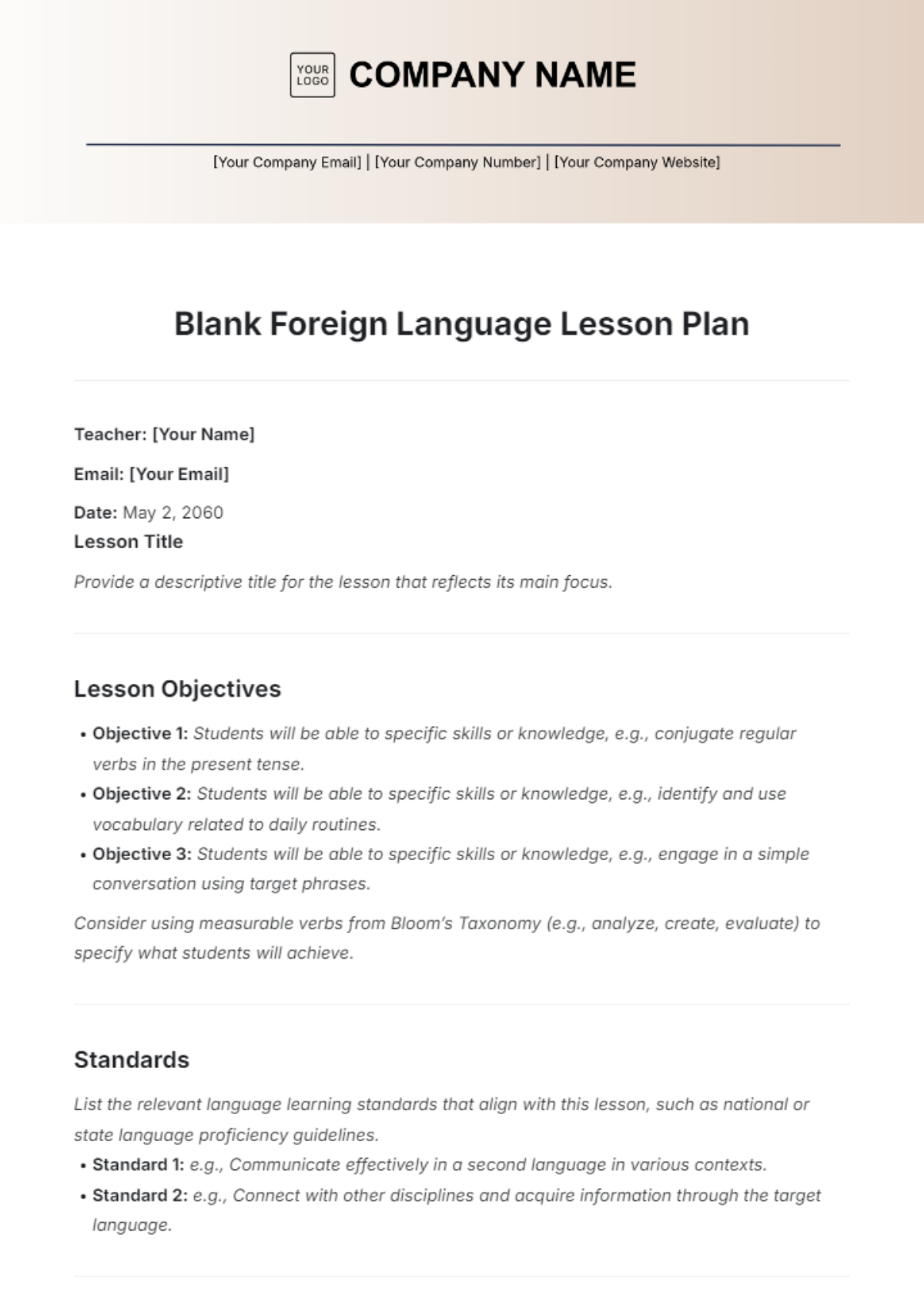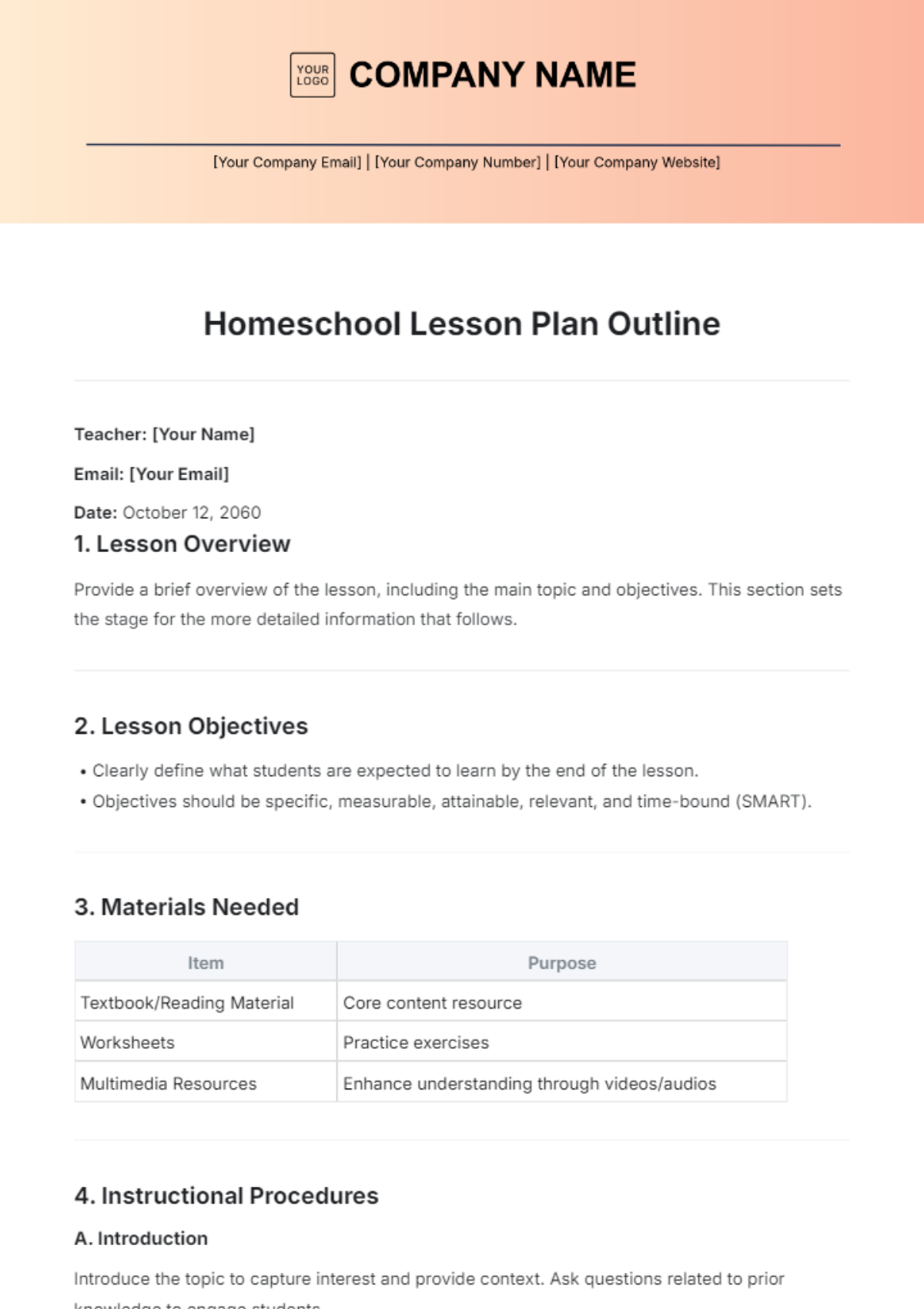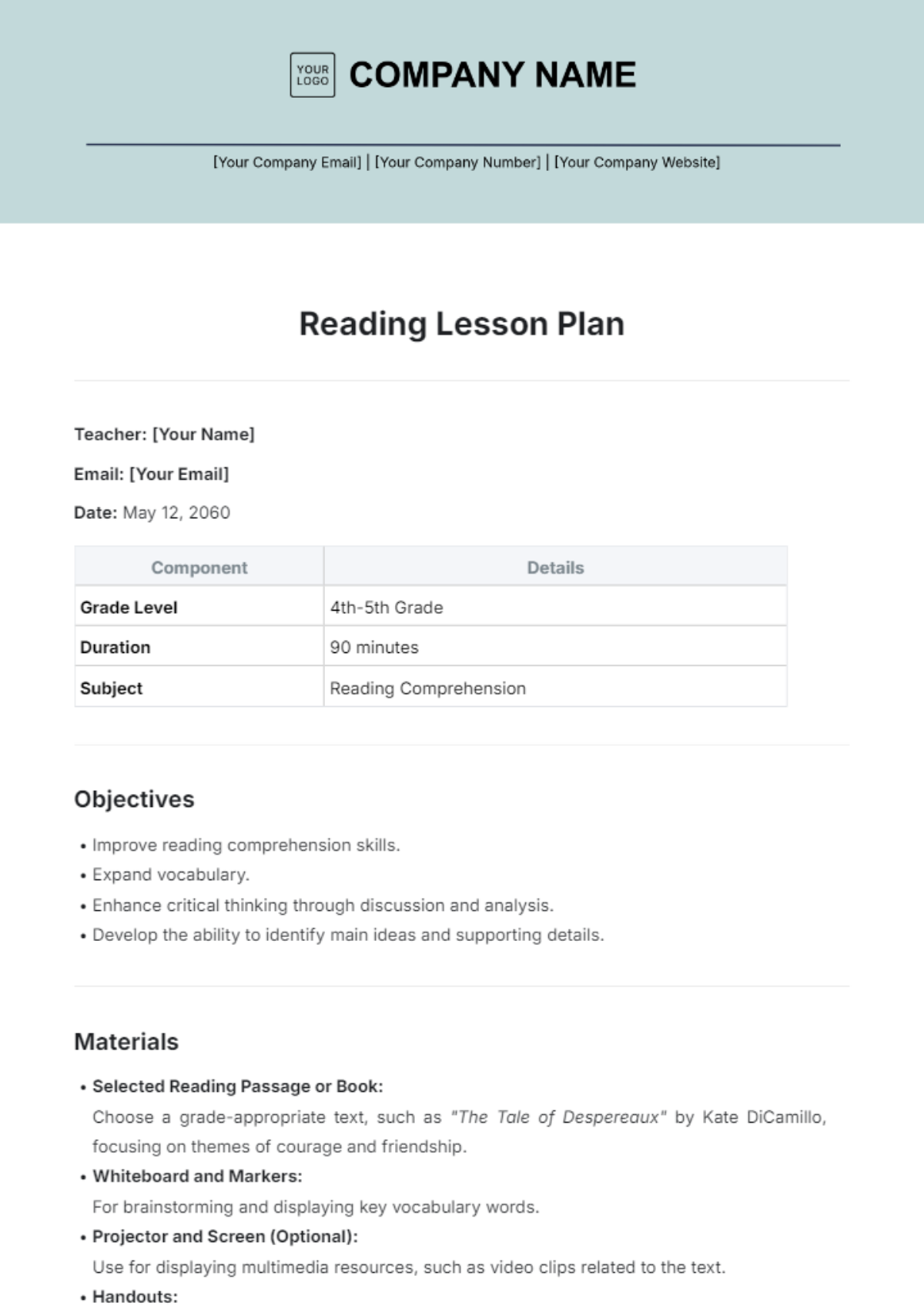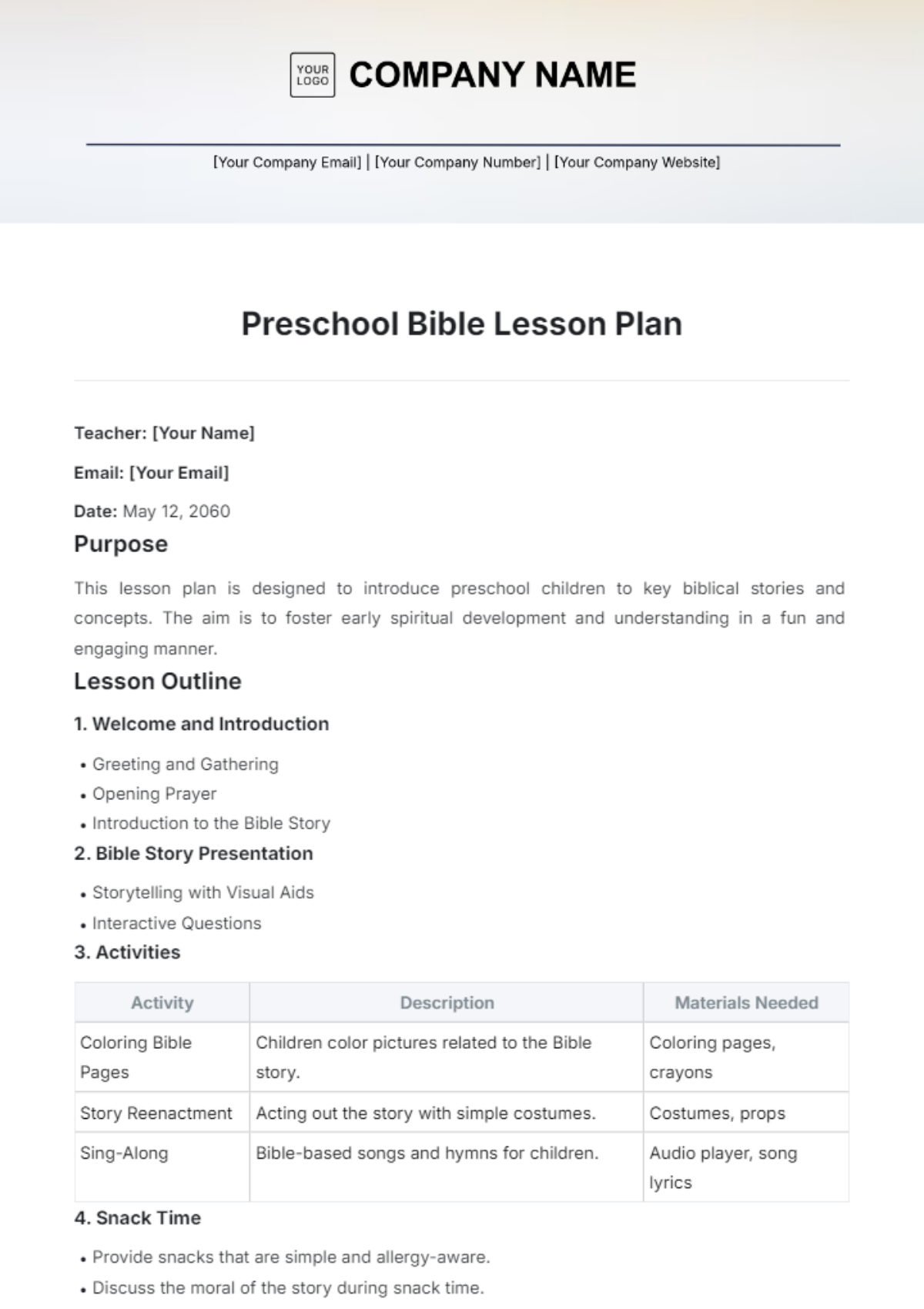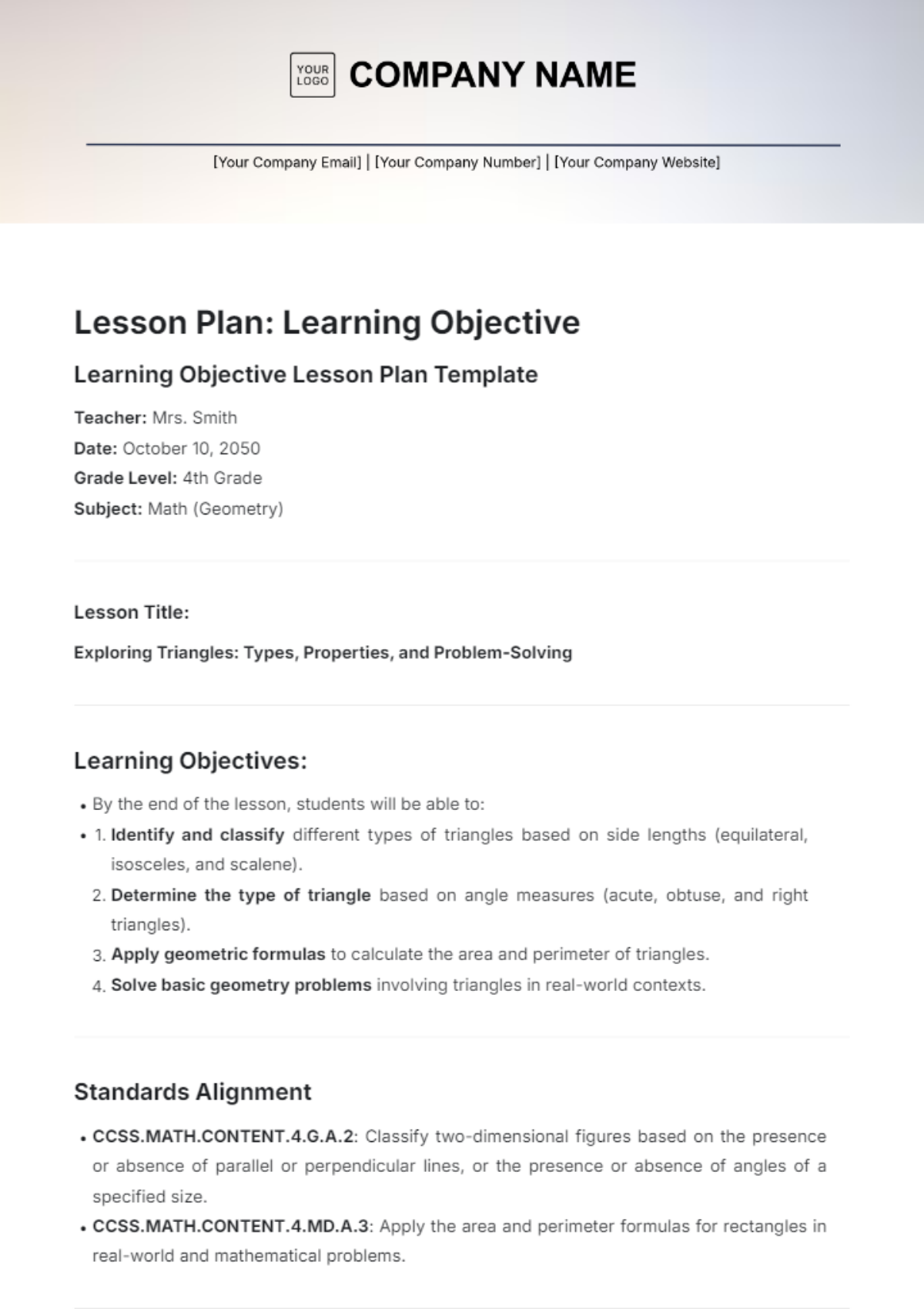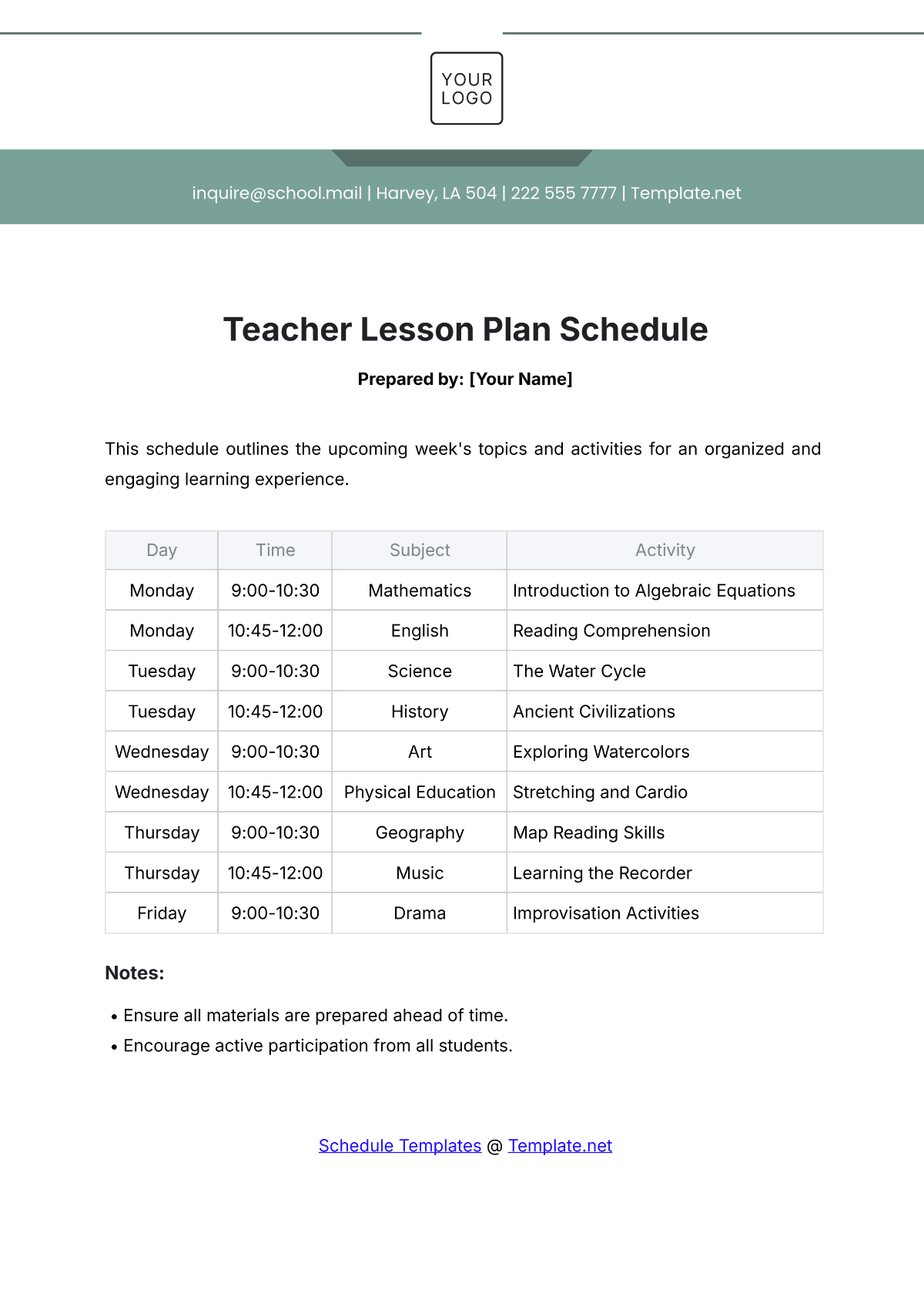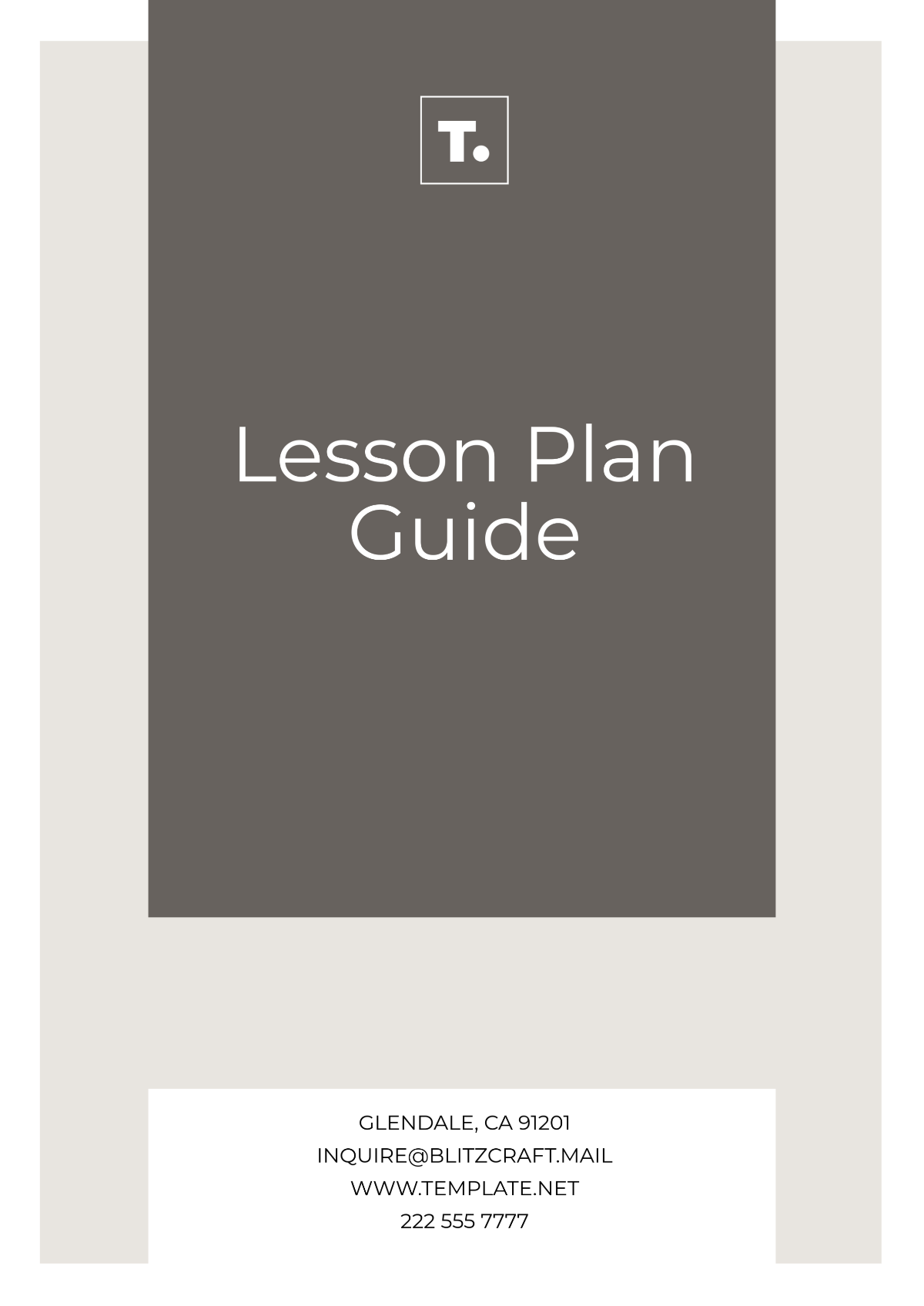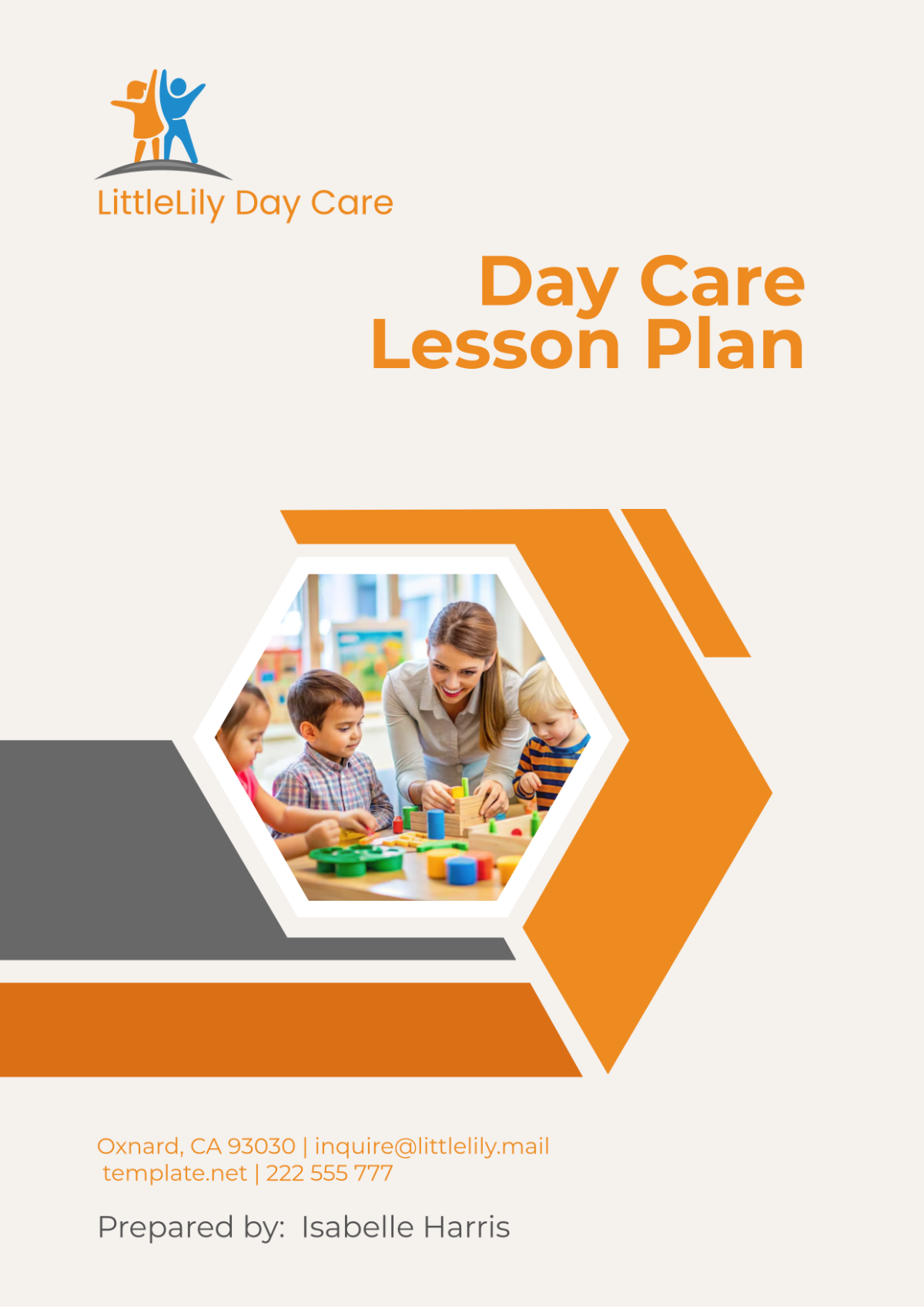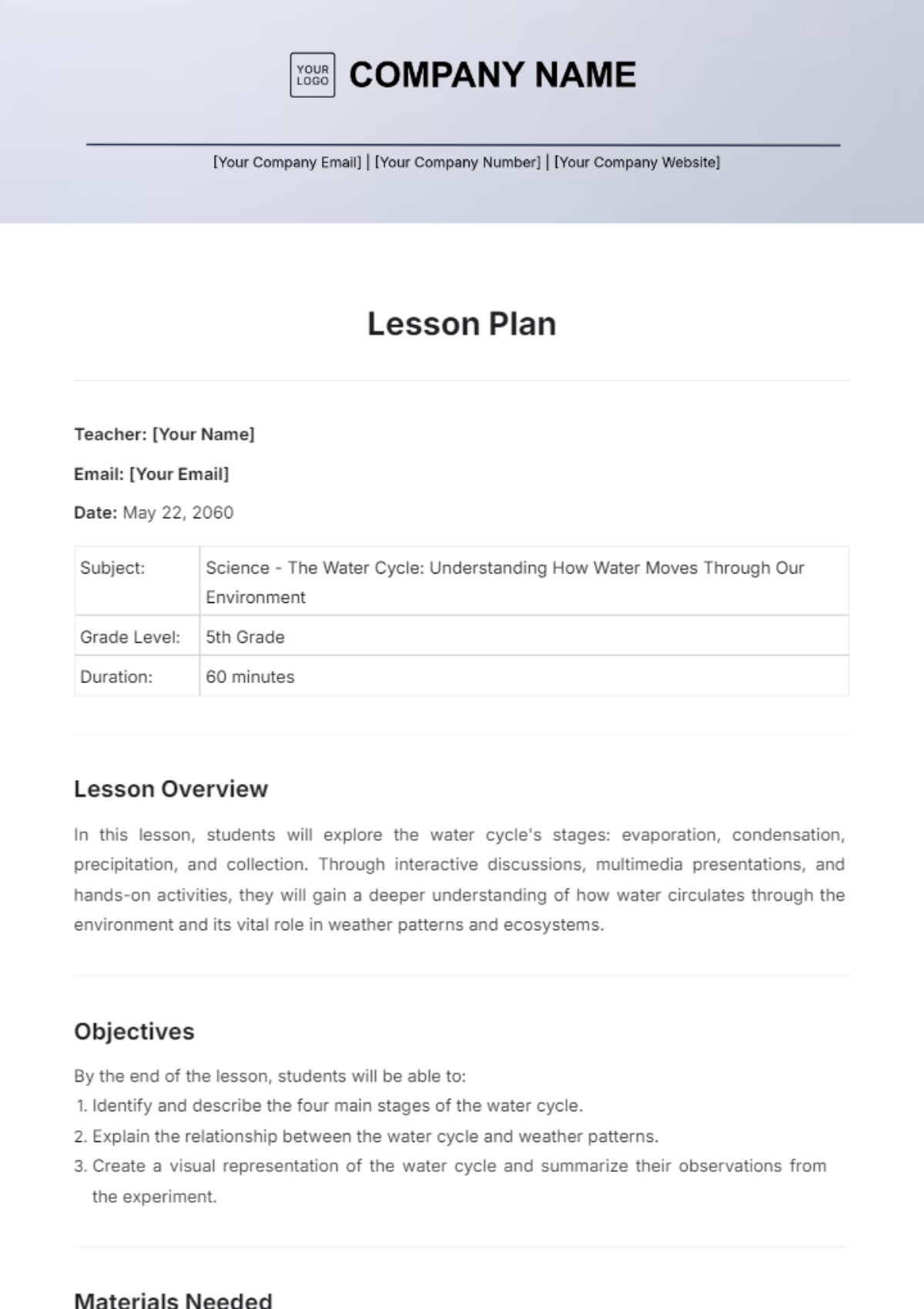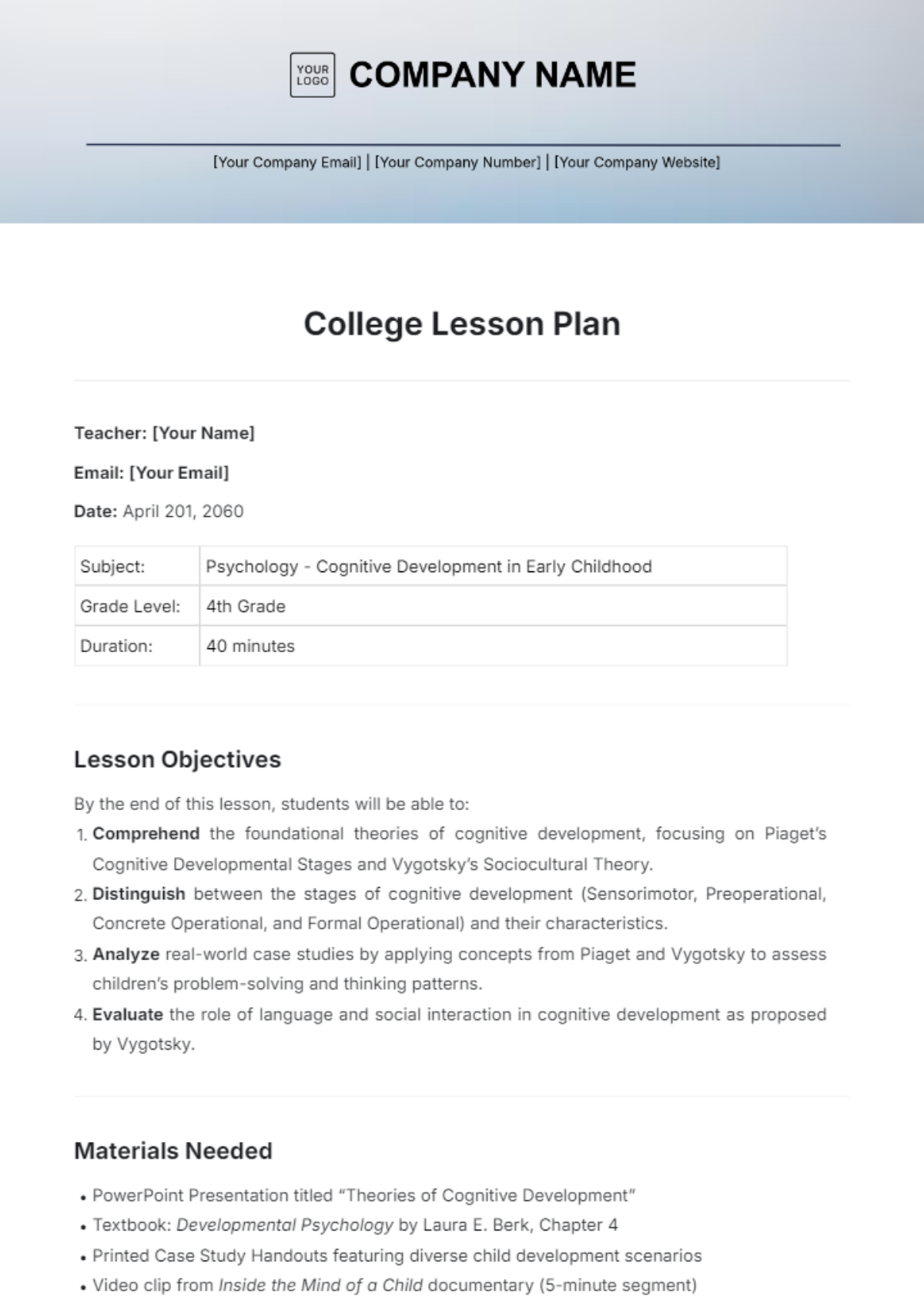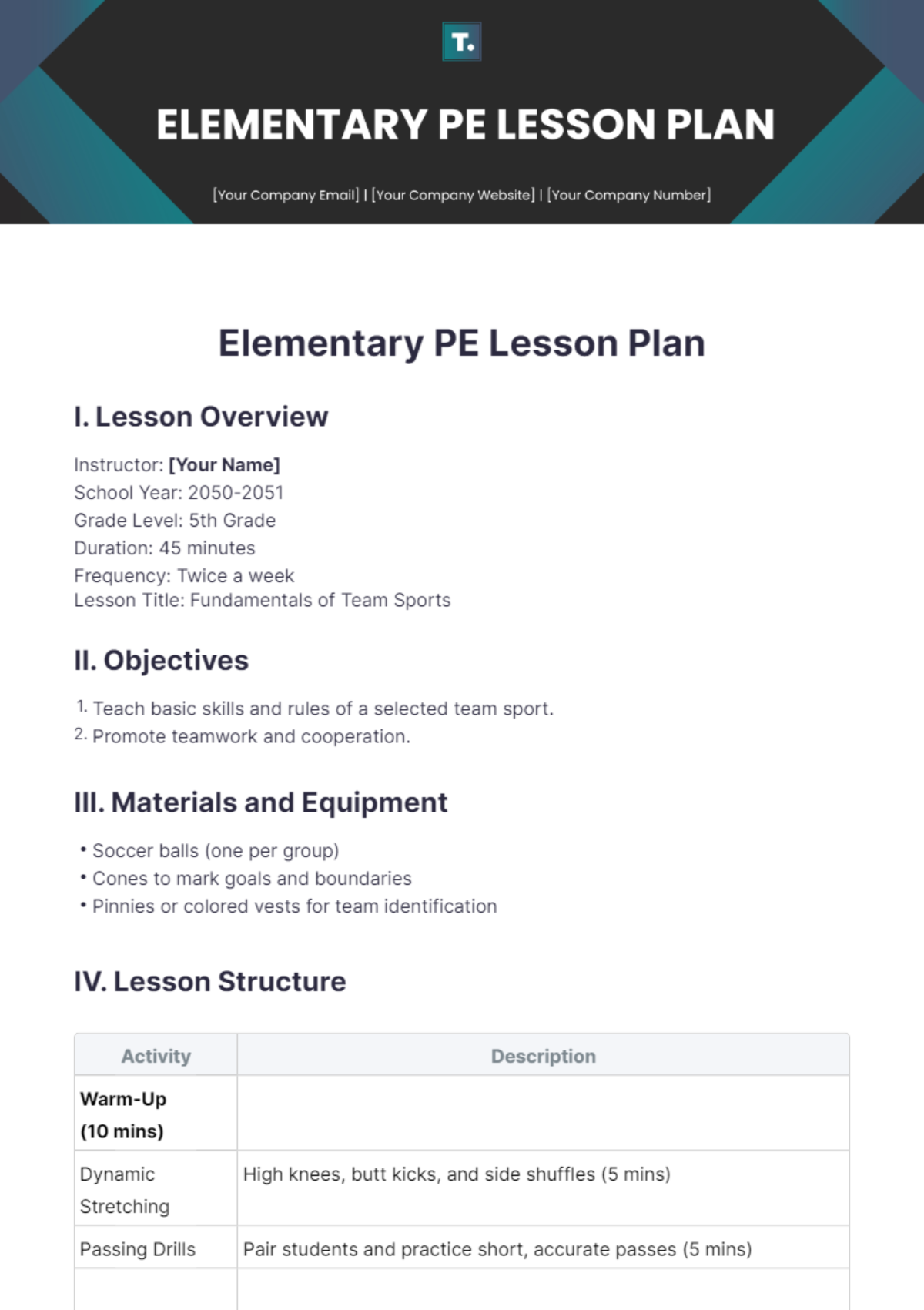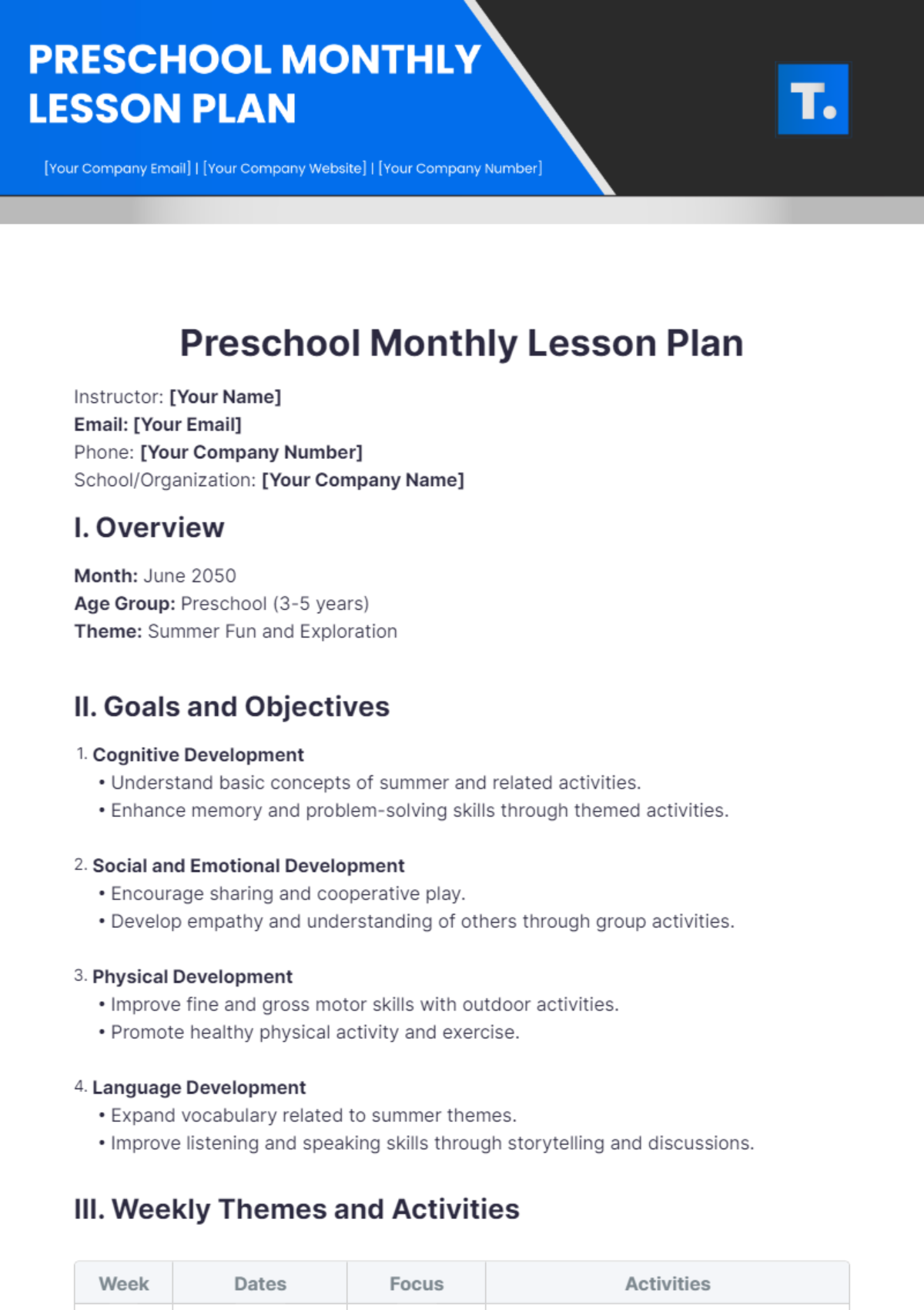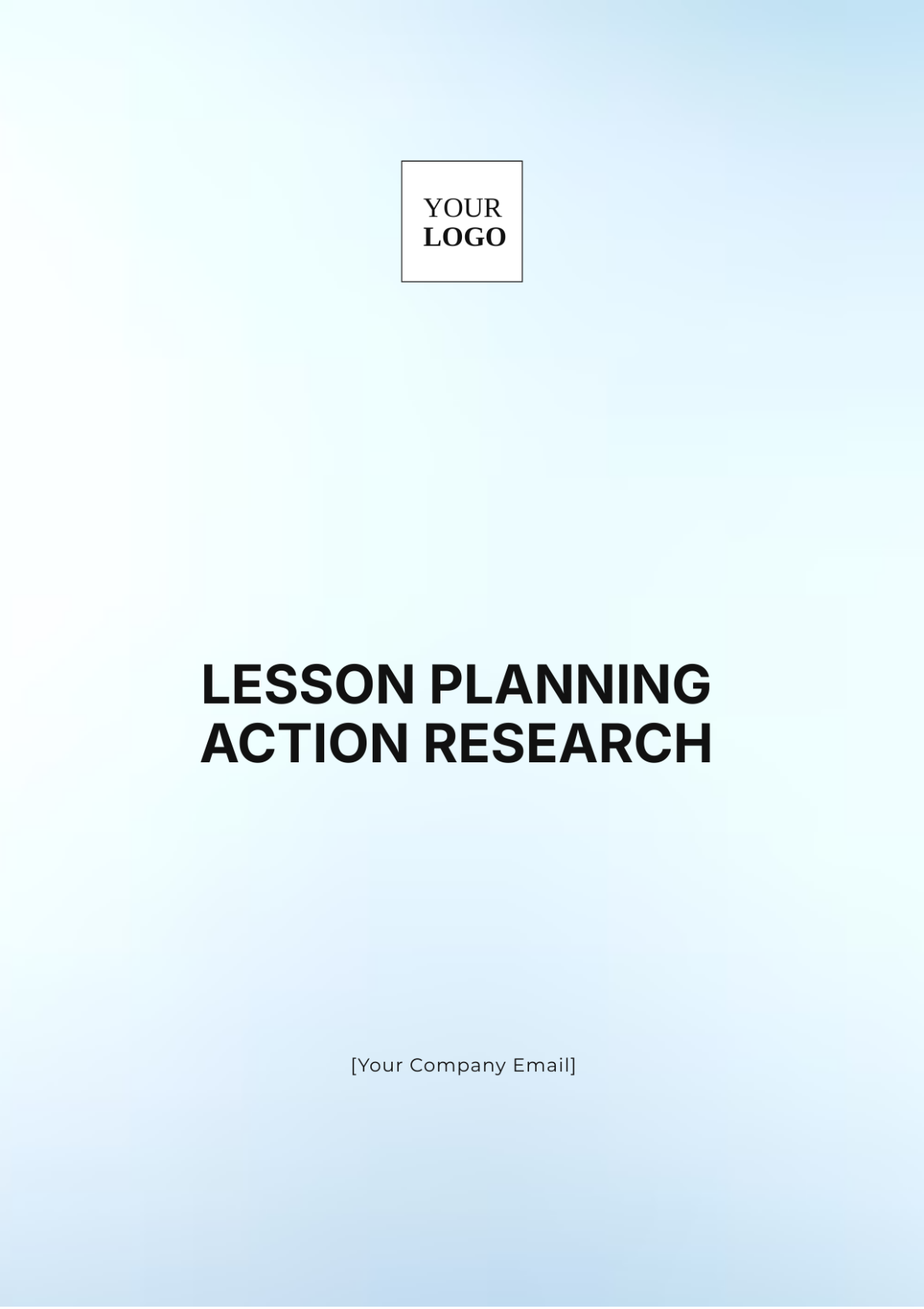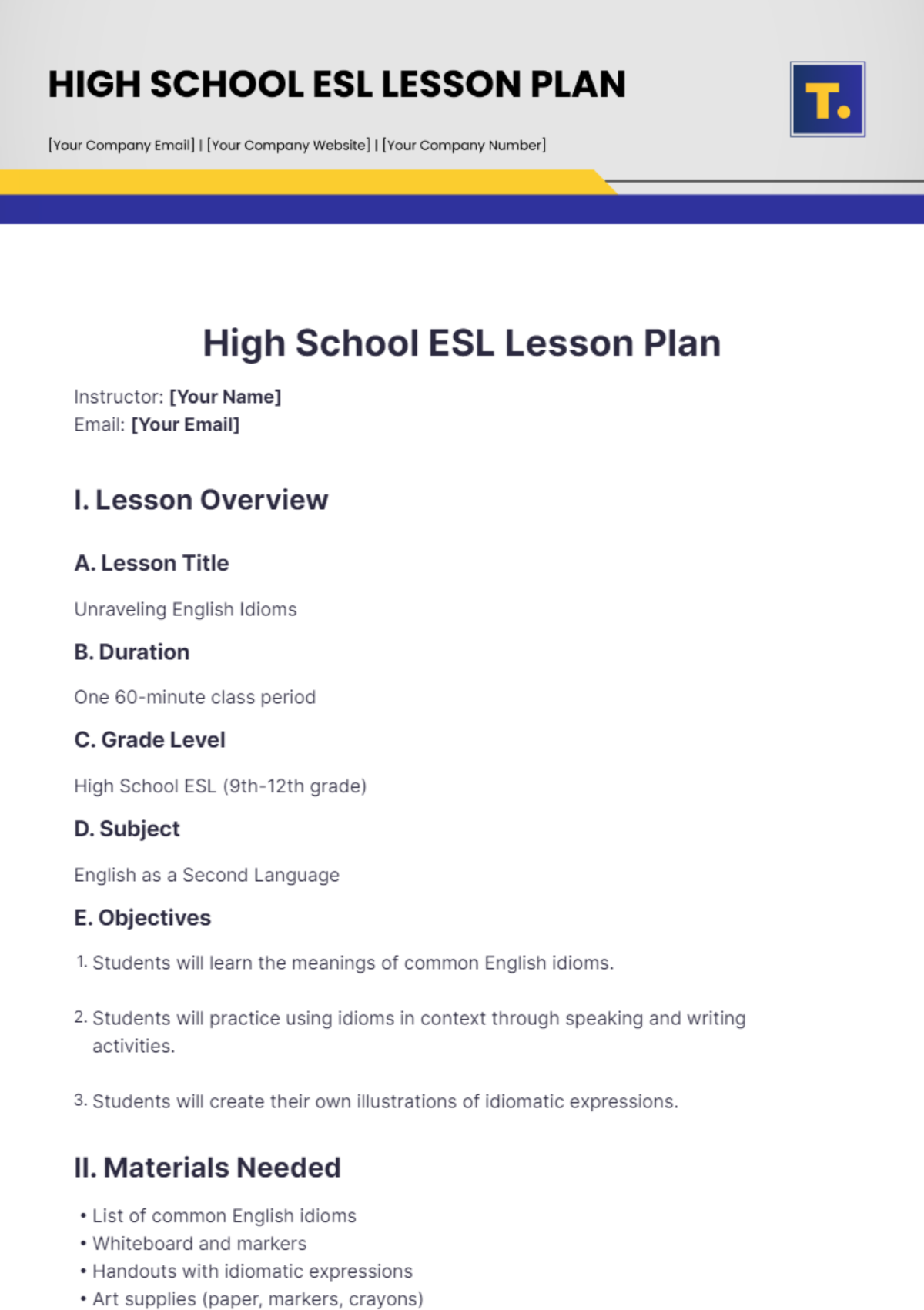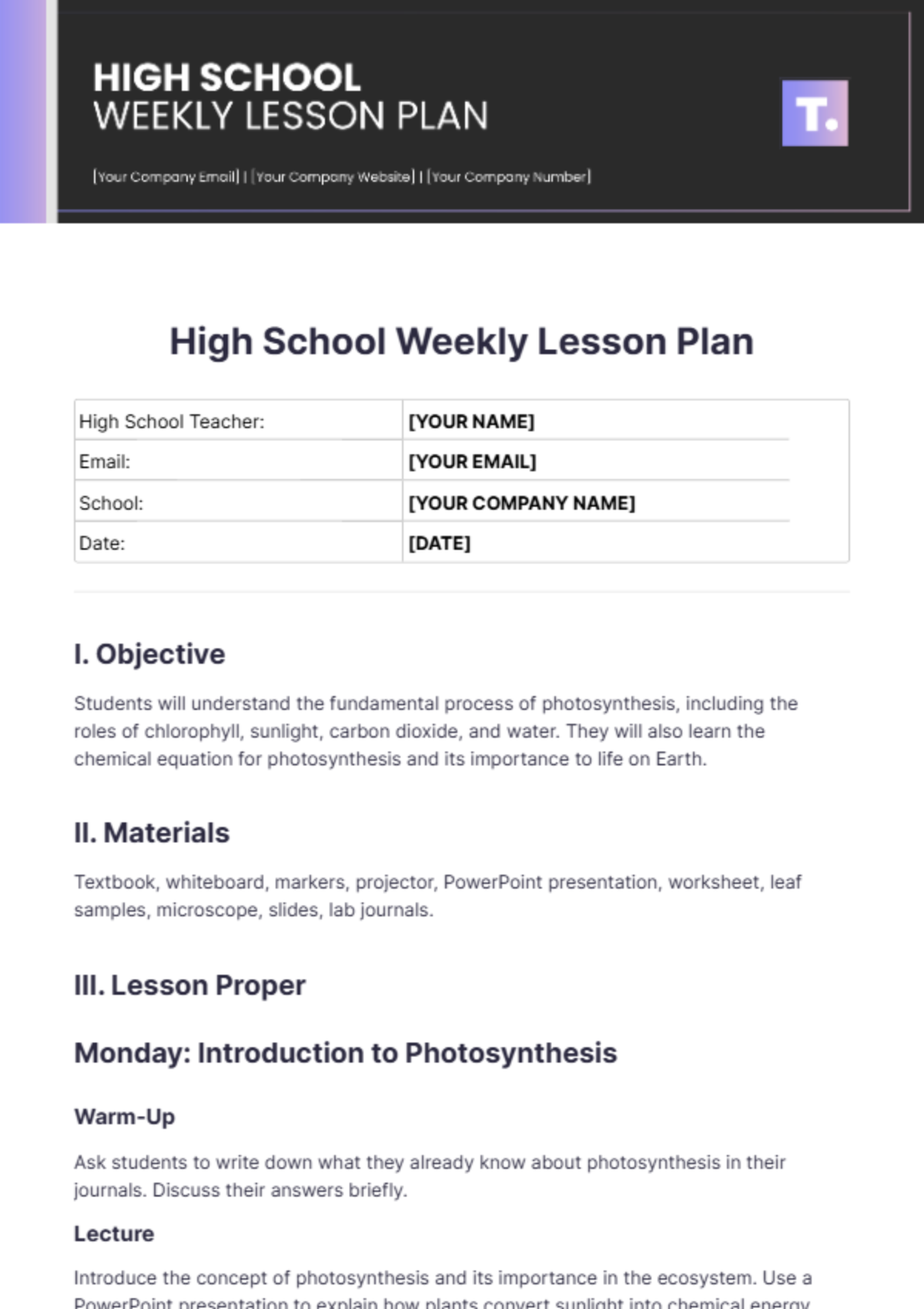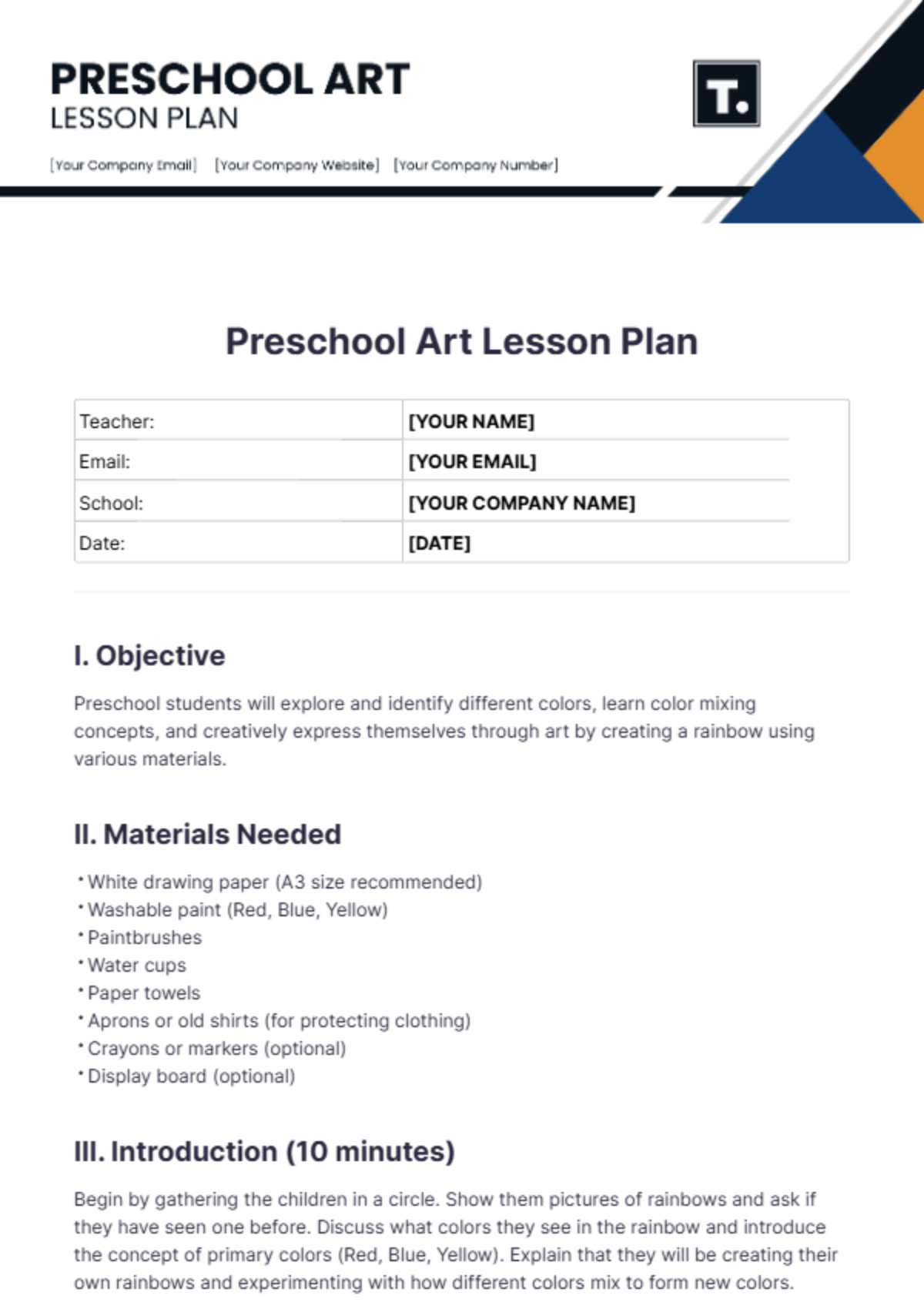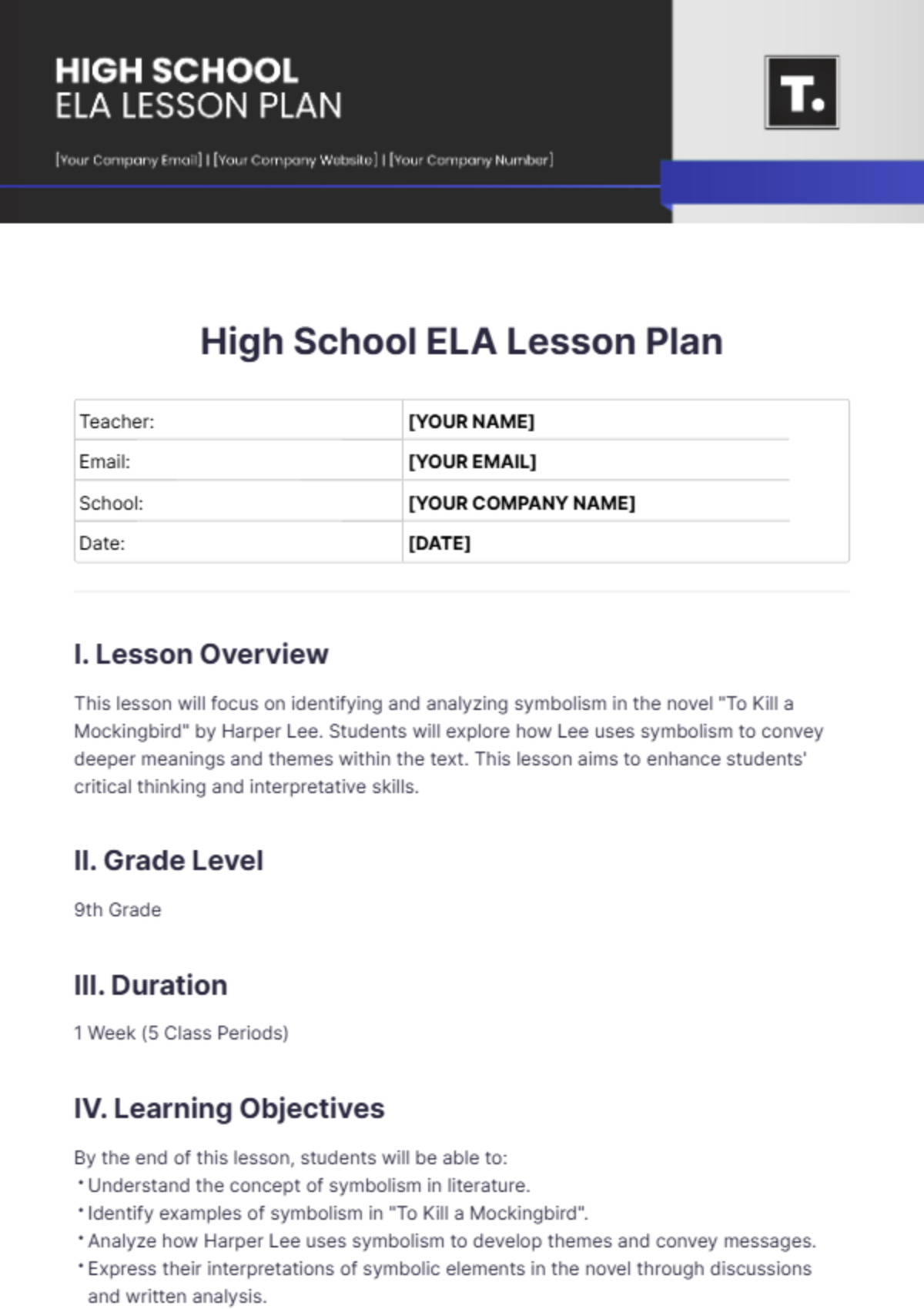College Lesson Plan
Teacher: [Your Name]
Email: [Your Email]
Date: April 201, 2060
Subject: | Psychology - Cognitive Development in Early Childhood |
Grade Level: | 4th Grade |
Duration: | 40 minutes |
Lesson Objectives
By the end of this lesson, students will be able to:
Comprehend the foundational theories of cognitive development, focusing on Piaget’s Cognitive Developmental Stages and Vygotsky’s Sociocultural Theory.
Distinguish between the stages of cognitive development (Sensorimotor, Preoperational, Concrete Operational, and Formal Operational) and their characteristics.
Analyze real-world case studies by applying concepts from Piaget and Vygotsky to assess children’s problem-solving and thinking patterns.
Evaluate the role of language and social interaction in cognitive development as proposed by Vygotsky.
Materials Needed
PowerPoint Presentation titled “Theories of Cognitive Development”
Textbook: Developmental Psychology by Laura E. Berk, Chapter 4
Printed Case Study Handouts featuring diverse child development scenarios
Video clip from Inside the Mind of a Child documentary (5-minute segment)
Projector, laptop, and clicker for lecture control
Whiteboard and markers for diagramming key concepts
Instructional Methods
Interactive Lecture with Q&A
Small Group Discussion and Analysis
Case Study Review
Peer Teaching via Group Presentations
Lesson Outline
A. Introduction and Review (10 minutes)
Welcome students and take attendance.
Recap last class: Discussed foundational developmental psychology concepts.
Provide a brief overview of today’s focus: Cognitive Development in Children, highlighting the importance of understanding how thinking evolves during early childhood.
Show a 3-minute video introducing the concept of cognitive development through everyday child interactions.
B. Lecture: Piaget’s and Vygotsky’s Theories (30 minutes)
Piaget’s Cognitive Developmental Stages:
Sensorimotor Stage (0-2 years): Understanding through physical interaction with the environment.
Preoperational Stage (2-7 years): Symbolic thinking, egocentrism, and developing language but struggling with logic.
Concrete Operational Stage (7-11 years): Logical thinking about concrete events, understanding conservation.
Formal Operational Stage (12+ years): Abstract and hypothetical reasoning.
Use visual aids (diagrams, timelines) to show the progression through stages.
Vygotsky’s Sociocultural Theory:
Emphasis on social interactions and cultural tools in cognitive development.
Explain the Zone of Proximal Development (ZPD) and the role of scaffolding in learning.
Use classroom examples and real-life observations to demonstrate how children rely on caregivers and peers to enhance their understanding.
Throughout the lecture, ask questions like: “Can anyone think of an example where a child learns something faster through the help of an adult or peer?”
Periodically pause for student input to keep the lecture interactive.
C. Class Discussion: Comparing Piaget and Vygotsky (10 minutes)
Break students into pairs to discuss the key differences between Piaget's and Vygotsky’s views on cognitive development.
Suggested discussion prompts:
"How do these theories differ in their explanation of how children learn?"
"Which theory seems more applicable in today’s educational settings?"
The instructor facilitates a 5-minute whole-class discussion summarizing student responses and clarifying key points.
D. Group Activity
Group Activity: Case Study Analysis (25 minutes)
Divide students into groups of 4-5. Each group receives a case study describing a child’s behavior (e.g., a 3-year-old struggling with conservation tasks or a 9-year-old displaying logical reasoning).
Task:
Identify the child’s cognitive development stage using Piaget’s framework.
Discuss how Vygotsky’s theory might explain the child’s ability to solve problems with help from adults or peers.
Prepare a 5-minute group presentation explaining their analysis.
The instructor circulates the room to assist and guide groups, ensuring that students stay on task.
Group Presentations (10 minutes)
Each group presents their analysis to the class. Encourage peer-to-peer teaching by allowing students to ask questions after each presentation.
The instructor provides constructive feedback on how well each group applied the theories to their case study.
Conclusion and Summary (5 minutes)
Recap the key takeaways: Differences between Piaget and Vygotsky, how cognitive abilities change with age, and the impact of social interaction on development.
Preview the next class topic: “Moral Development in Adolescence,” and relate how cognitive development lays the foundation for moral reasoning.
Assign homework (see below).
Assessment/Evaluation
Participation: Active involvement in class discussion and group activity (10%).
Group Case Study Analysis: Each group will submit a 1-page written analysis by the next class. This will be graded for accuracy in applying cognitive development concepts (20%).
Reflection Paper: Students will write a 1-page reflection on their observation of a child’s cognitive development in their environment, connecting it to Piaget and Vygotsky’s theories (due next week, 10%).
Homework/Reading
Required Reading:
Chapter 5: “Moral and Social Development” from Developmental Psychology by Laura E. Berk.
Focus on how moral reasoning evolves during adolescence, drawing connections to earlier cognitive development stages.
Reflection Assignment: Write a 1-page reflection on an observed interaction involving a child, discussing the cognitive development stage and the influence of social interaction (due next class).
Instructor’s Reflection/Notes
Did students seem more engaged with Piaget’s or Vygotsky’s theory?
Adjust time allocation for future presentations; some groups may need additional time for case study analysis.
Consider incorporating a more hands-on activity (such as role-playing or real-life demonstrations) to solidify your understanding of abstract concepts.
Reflect on adding examples from recent studies or news articles for a more modern application of these theories.
